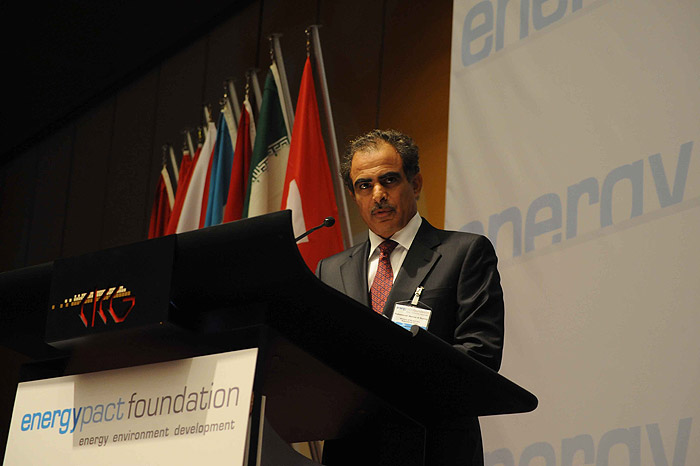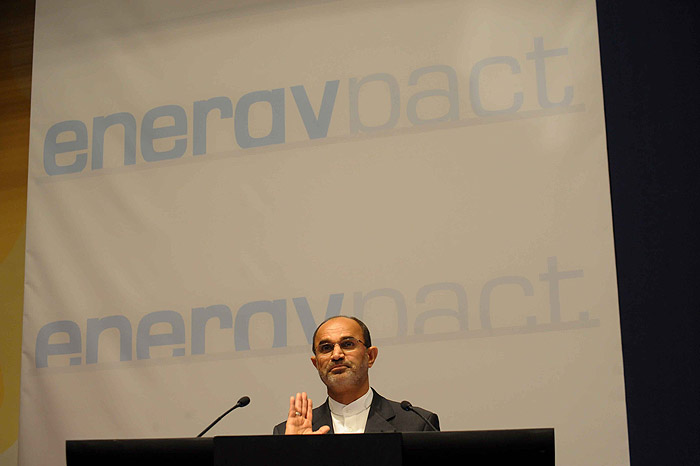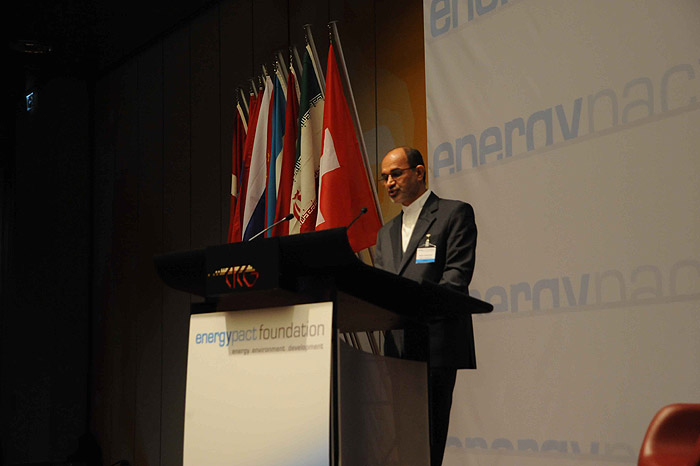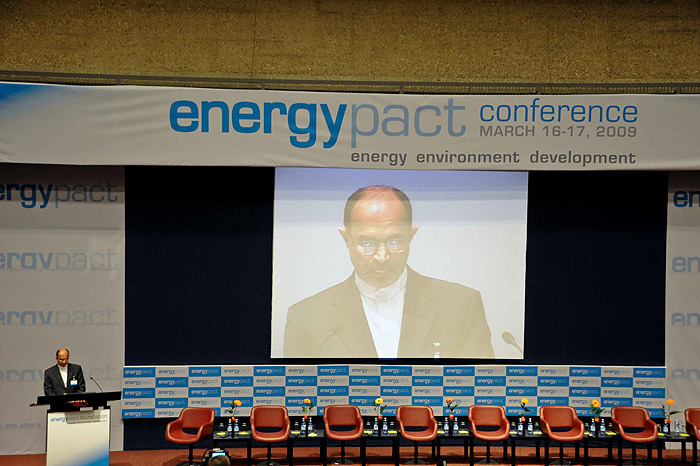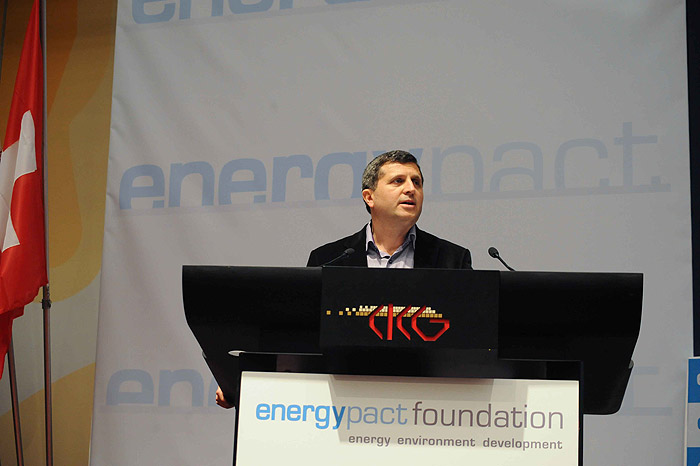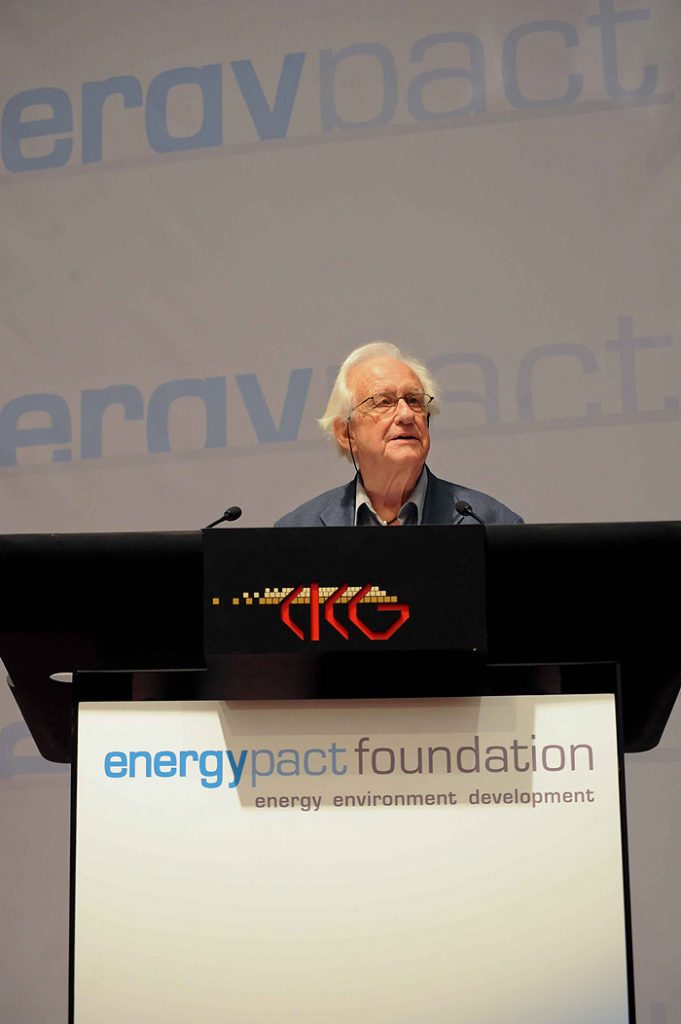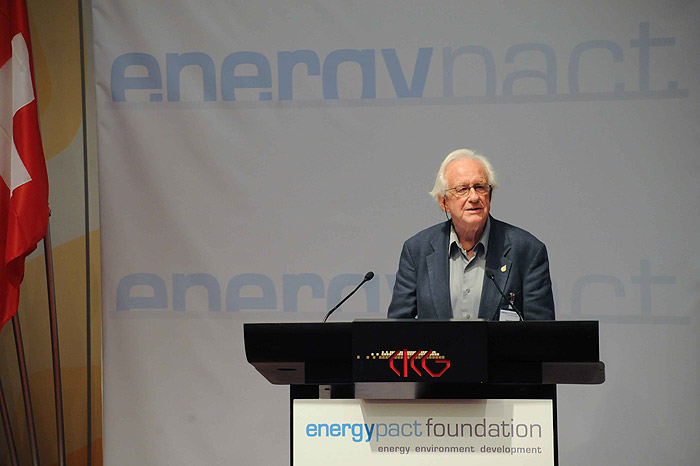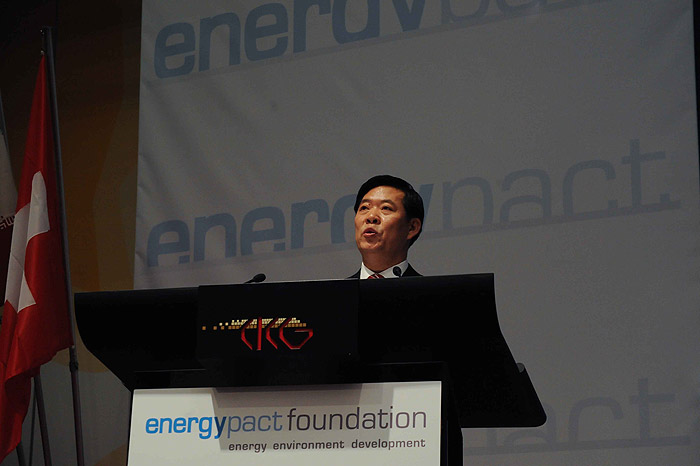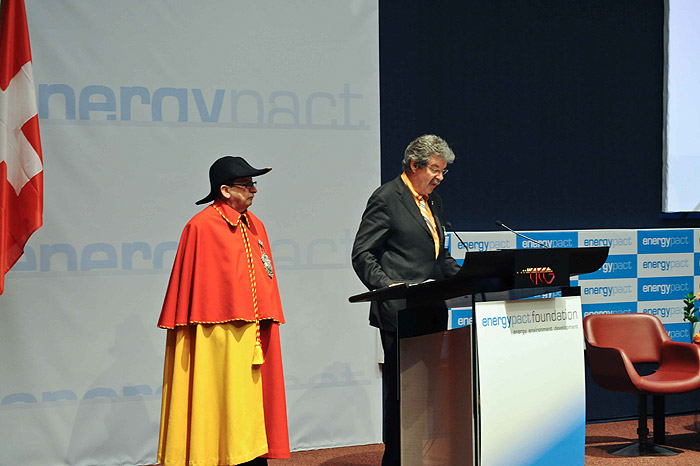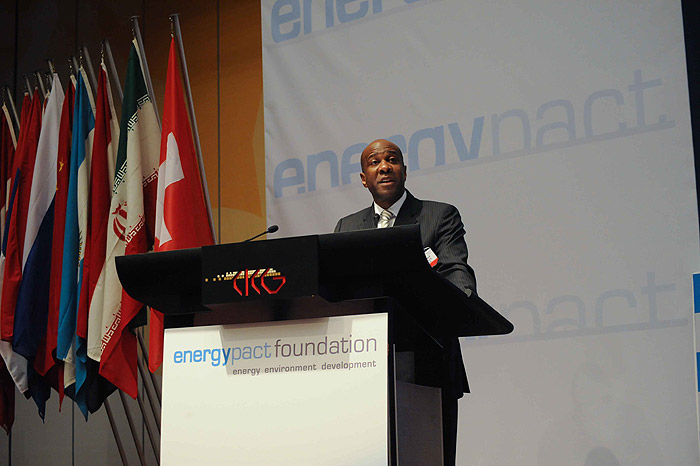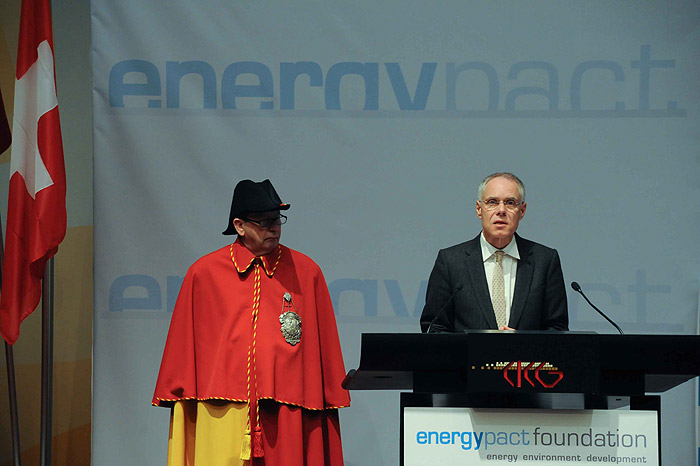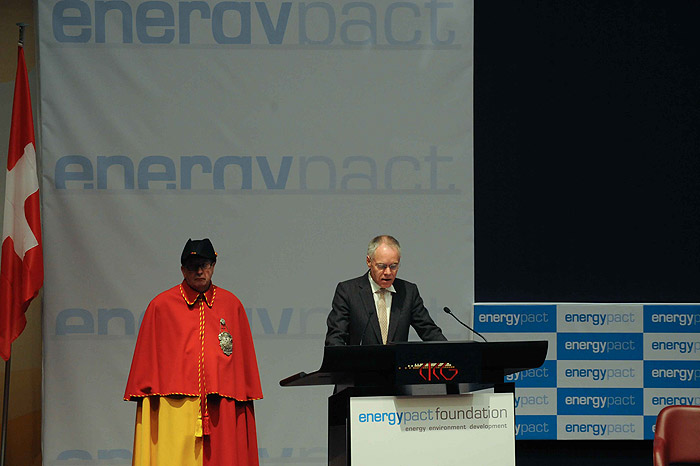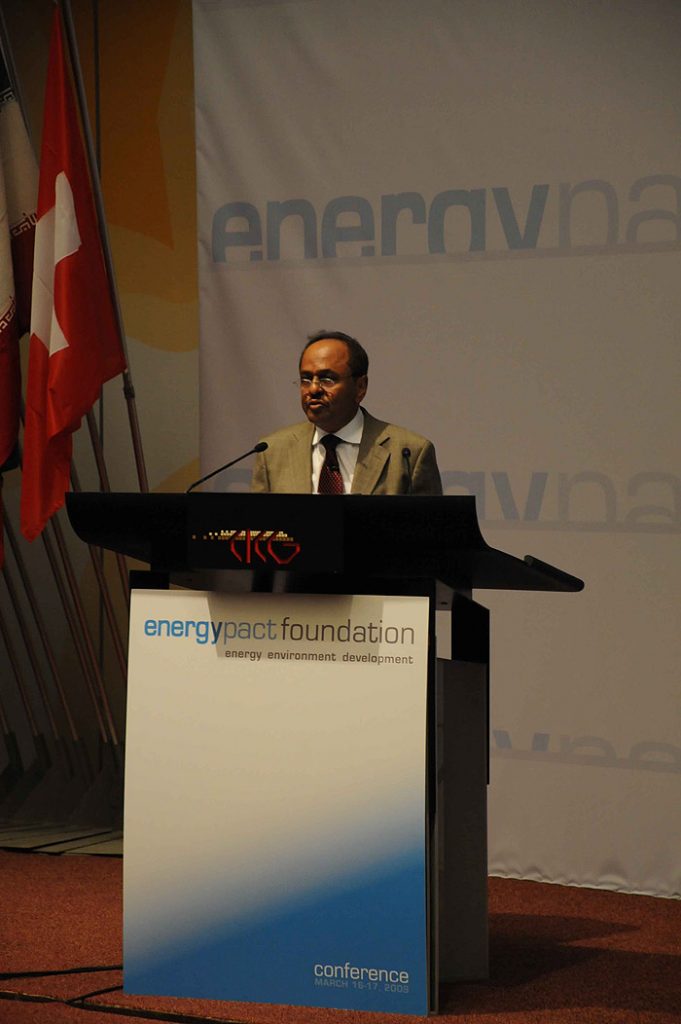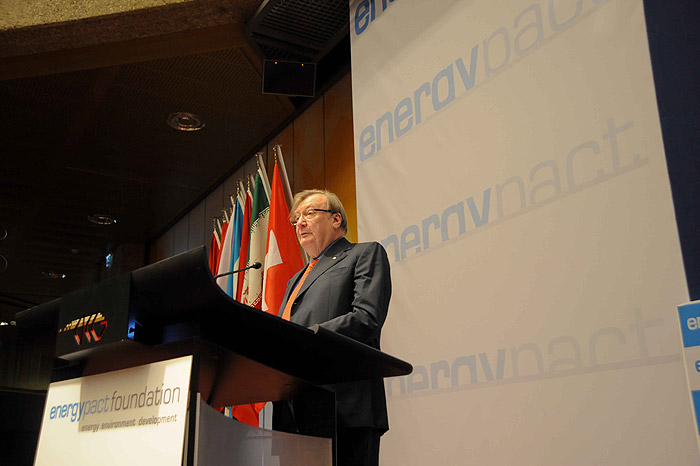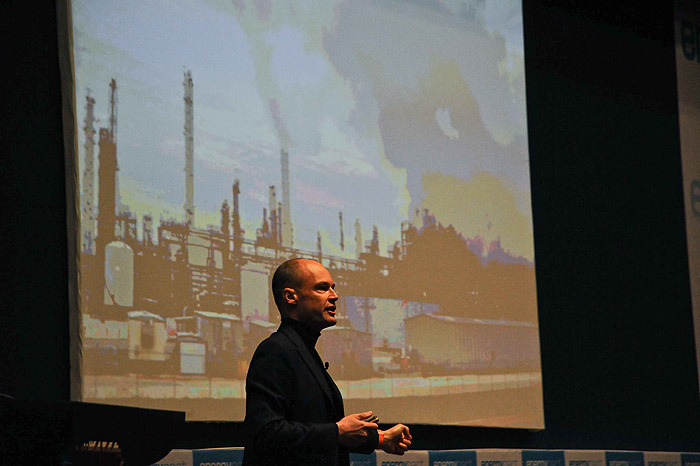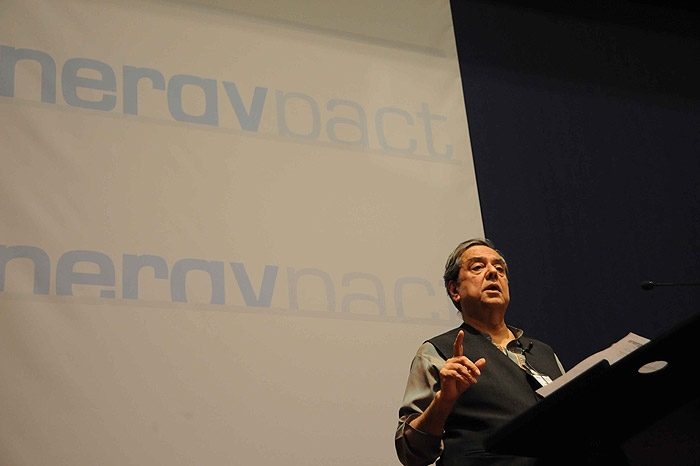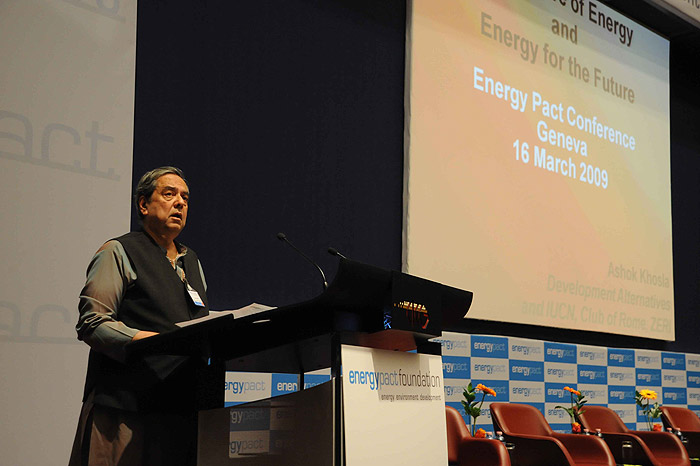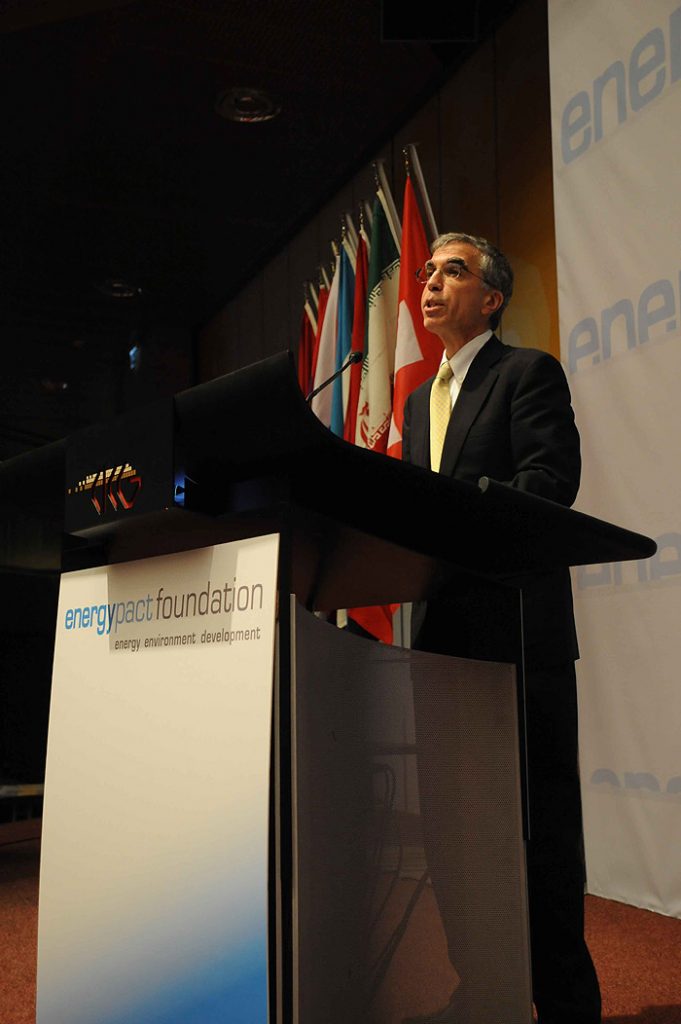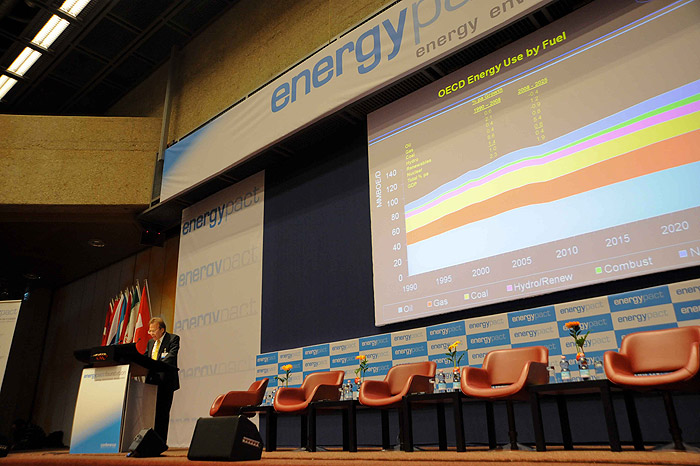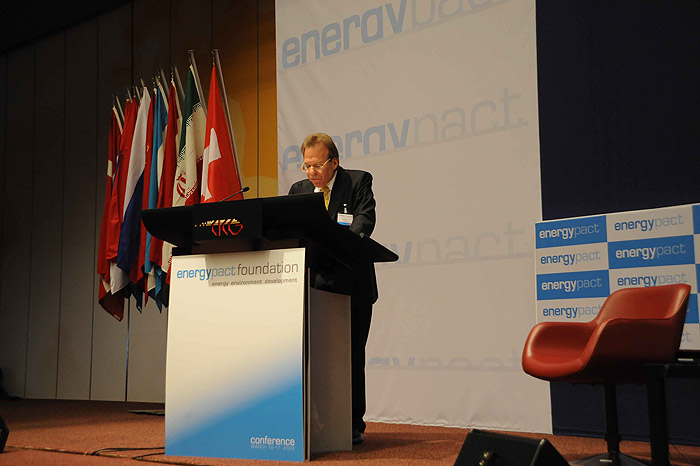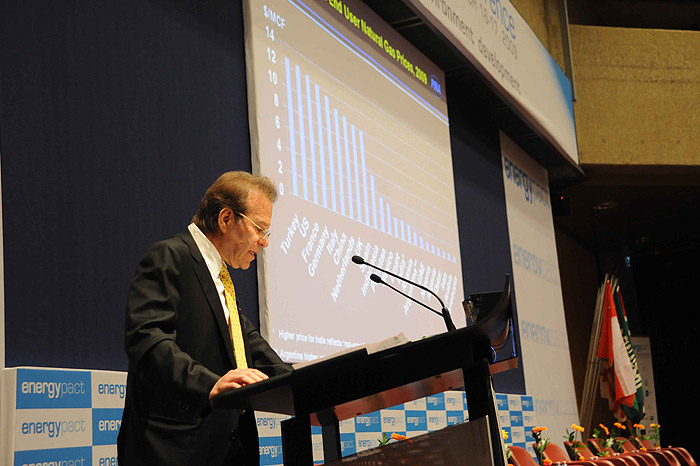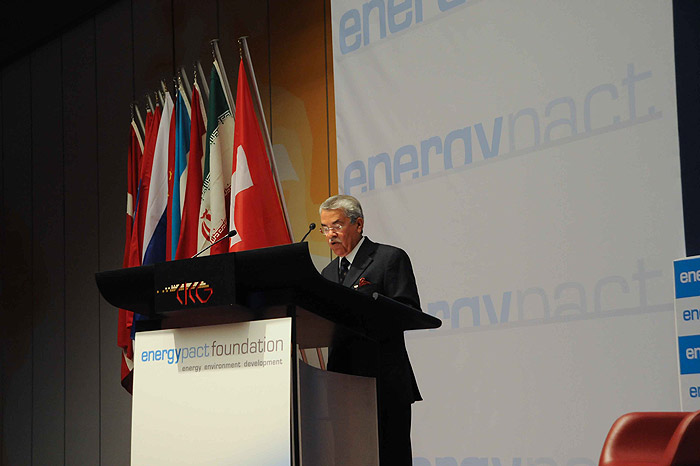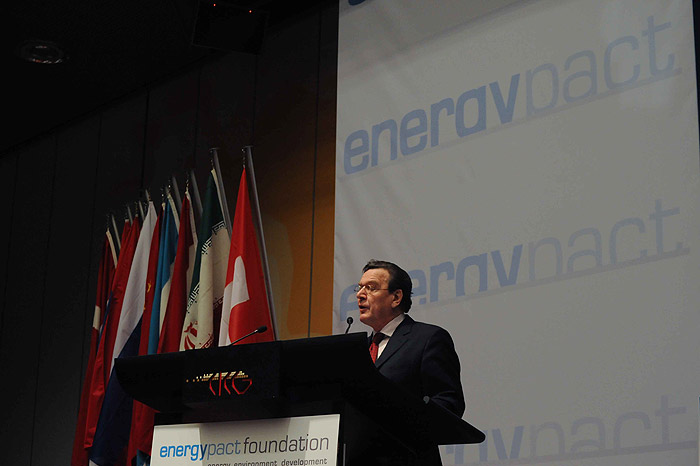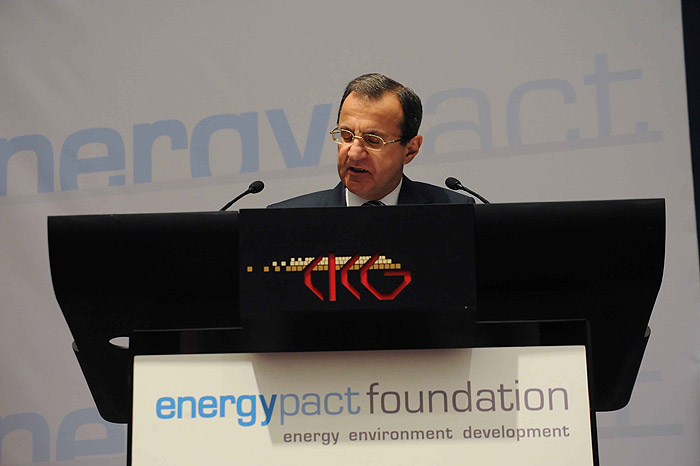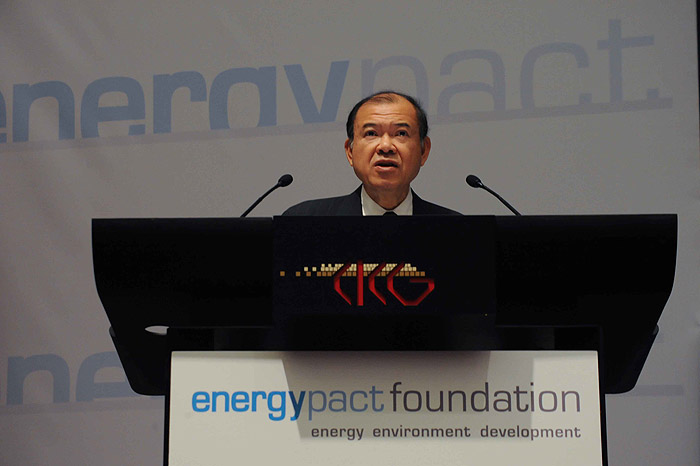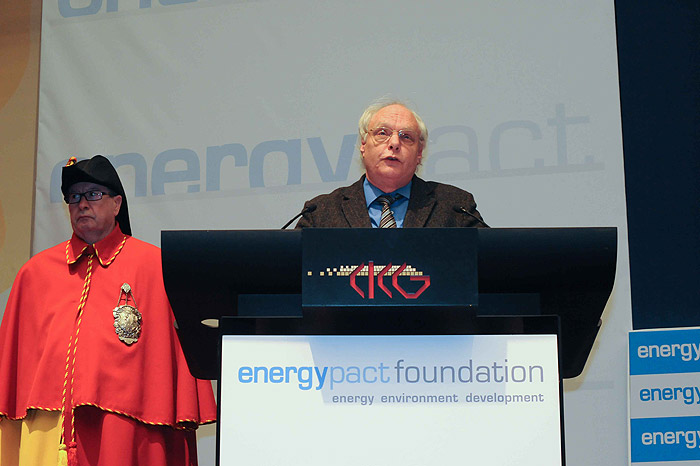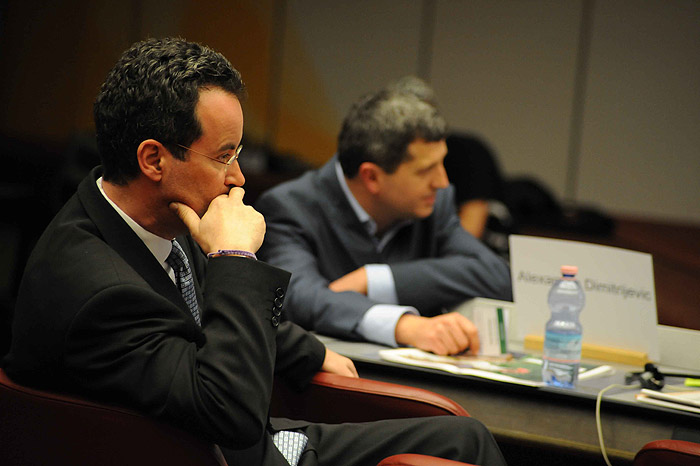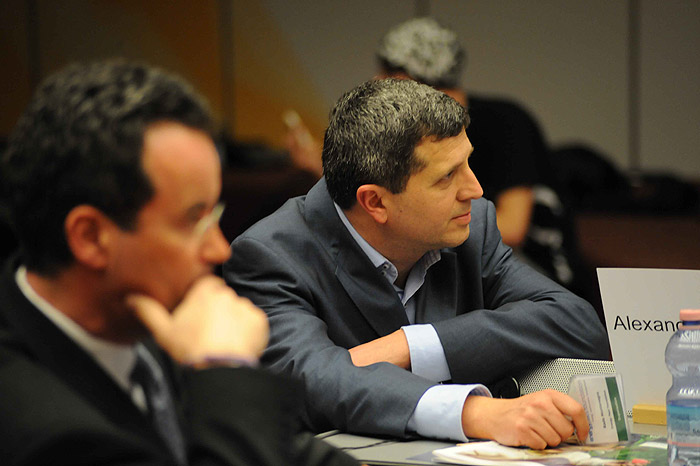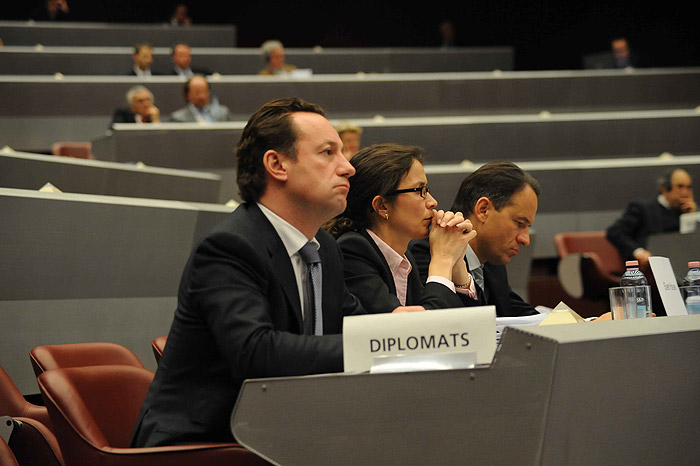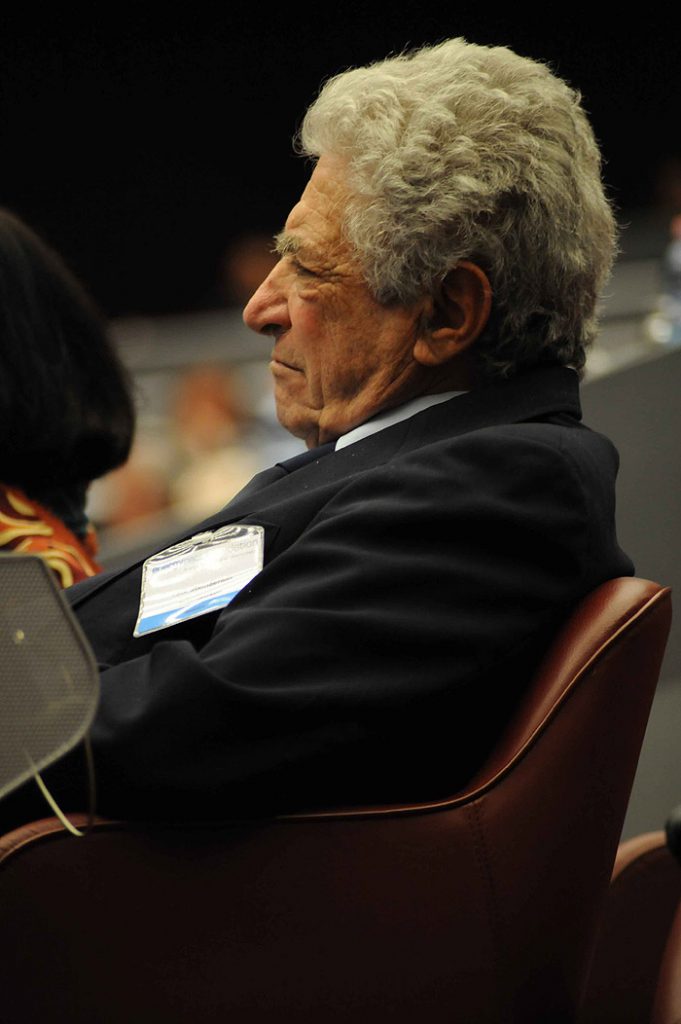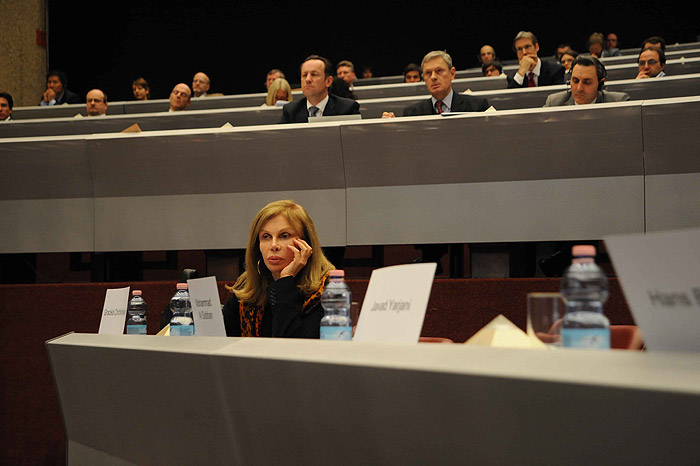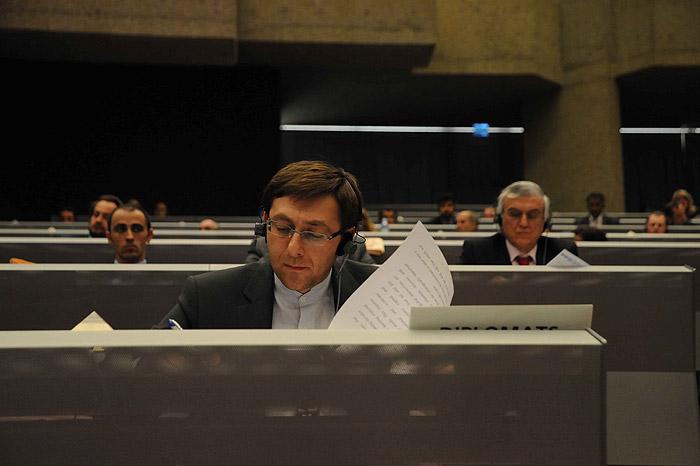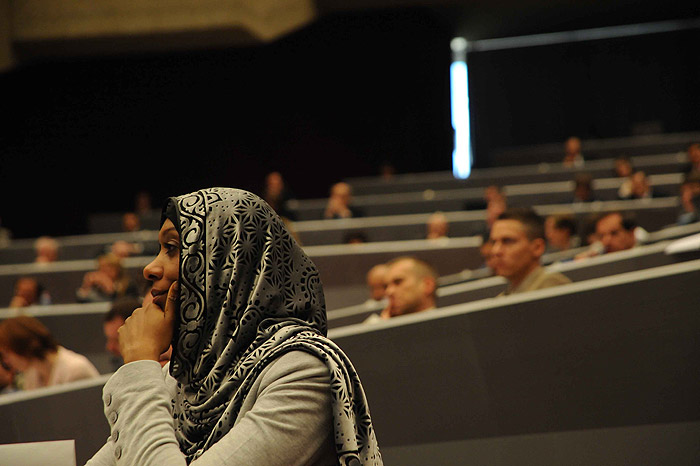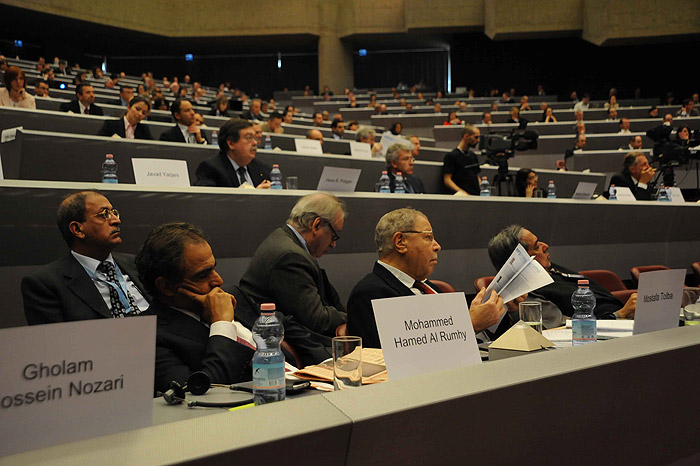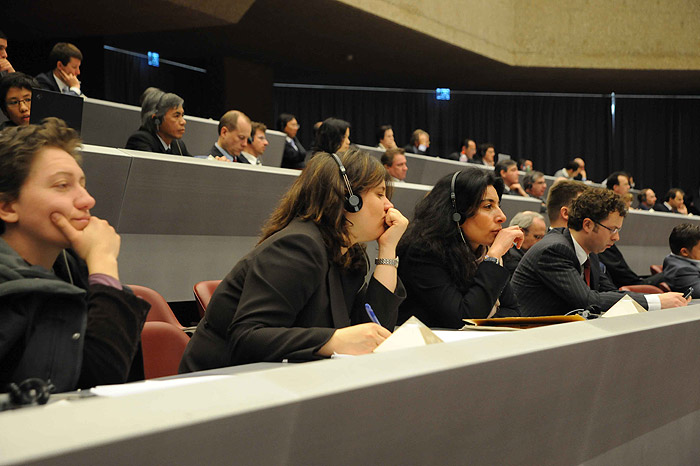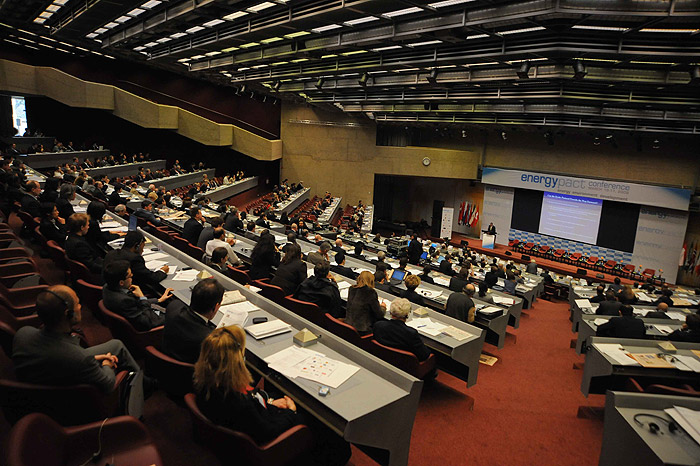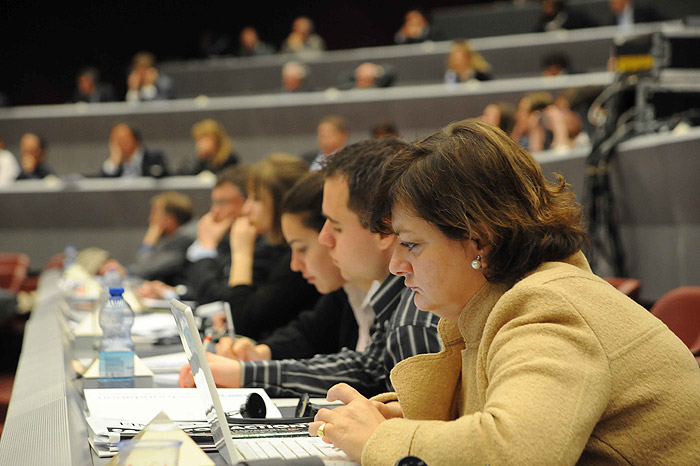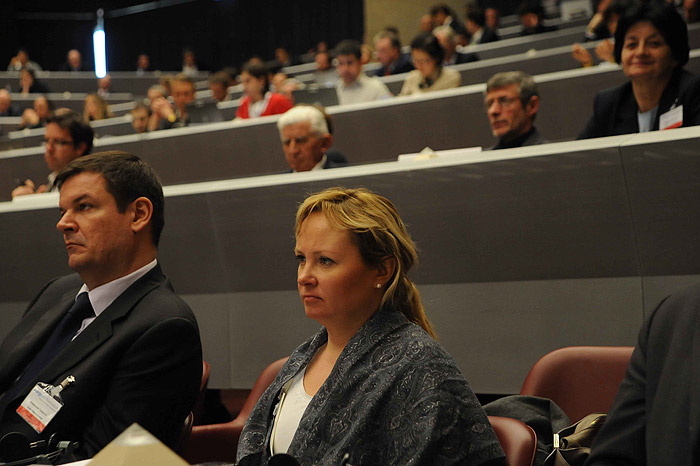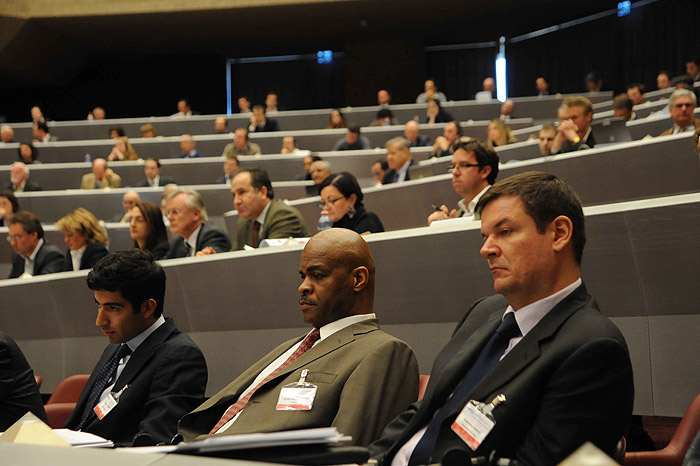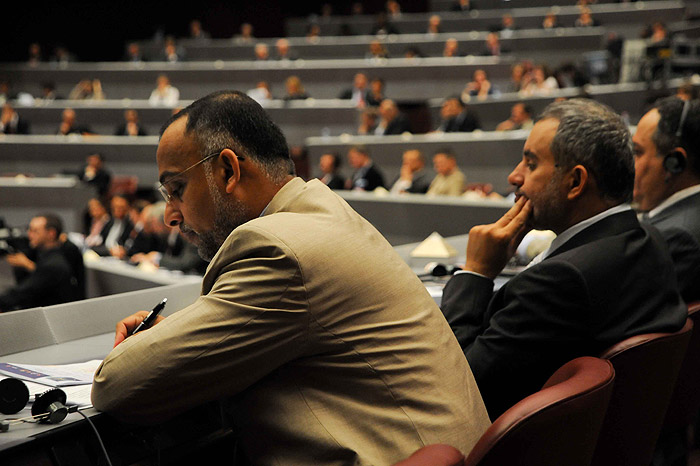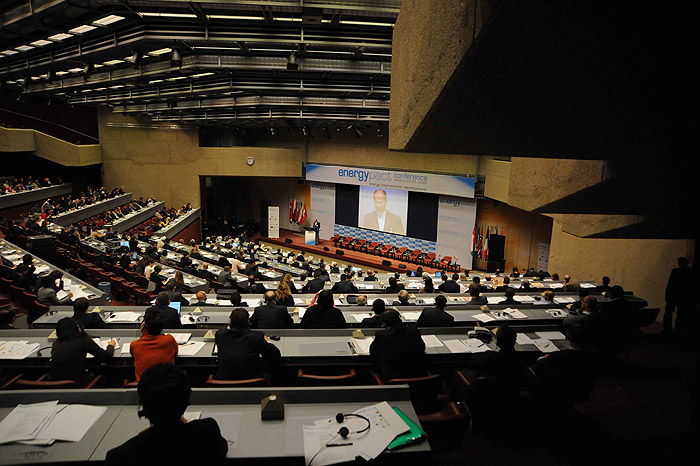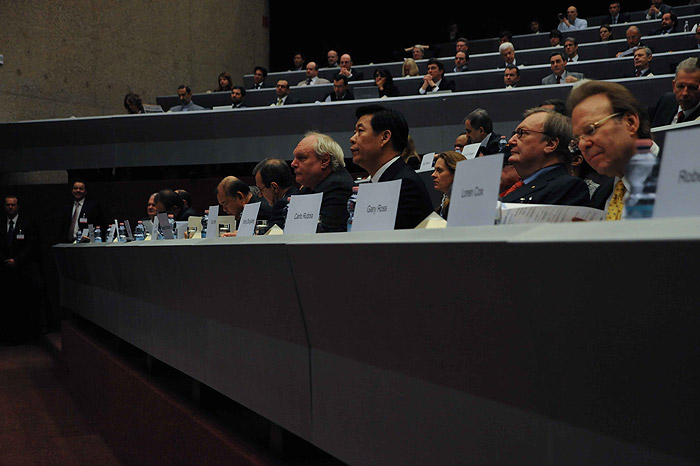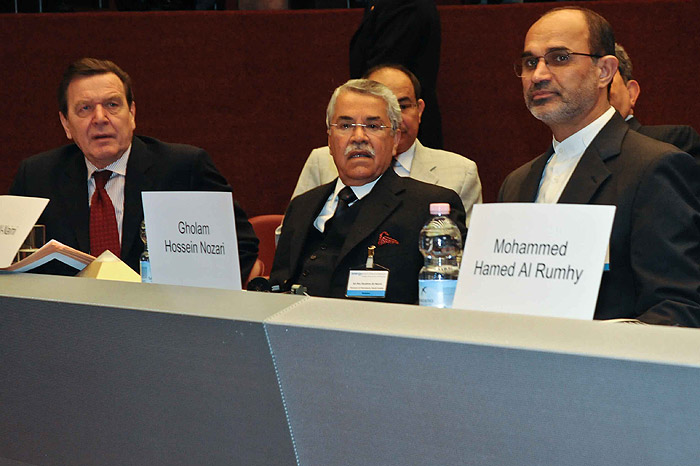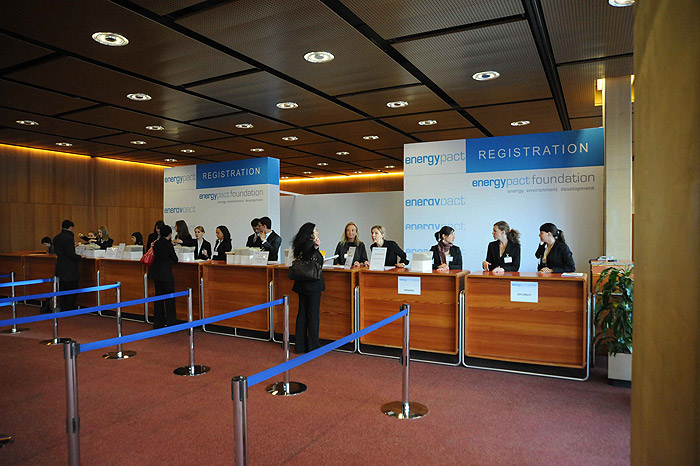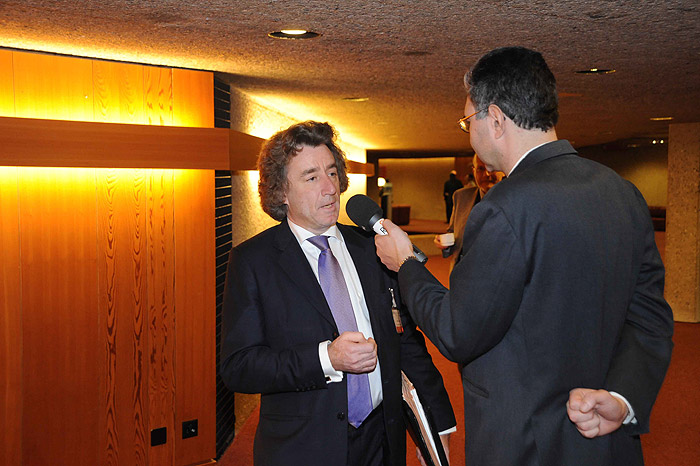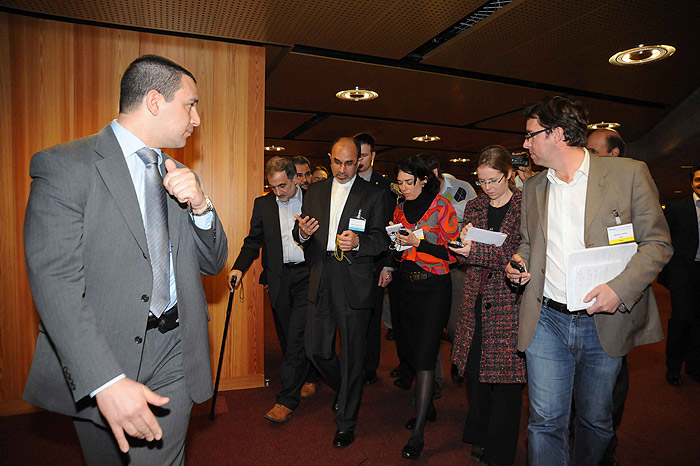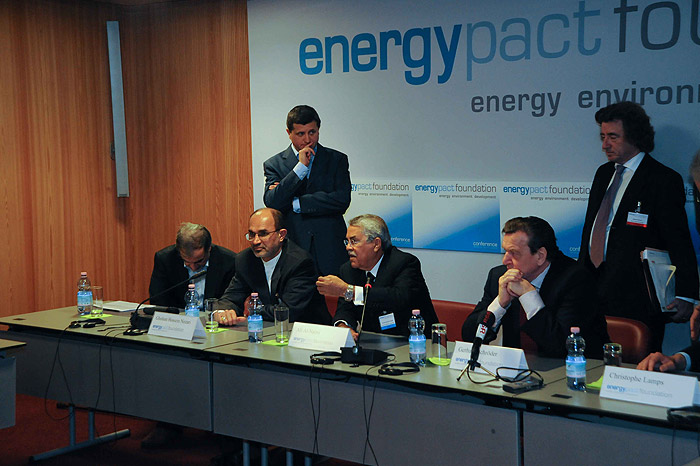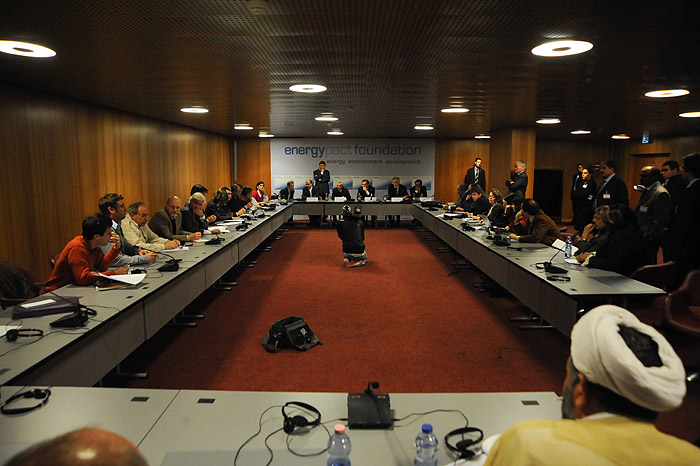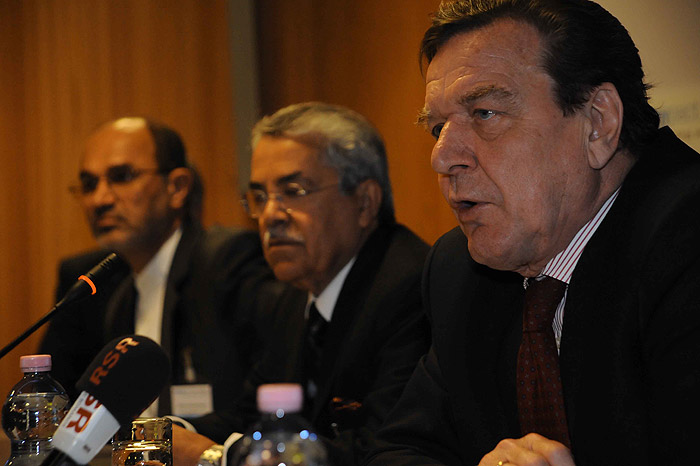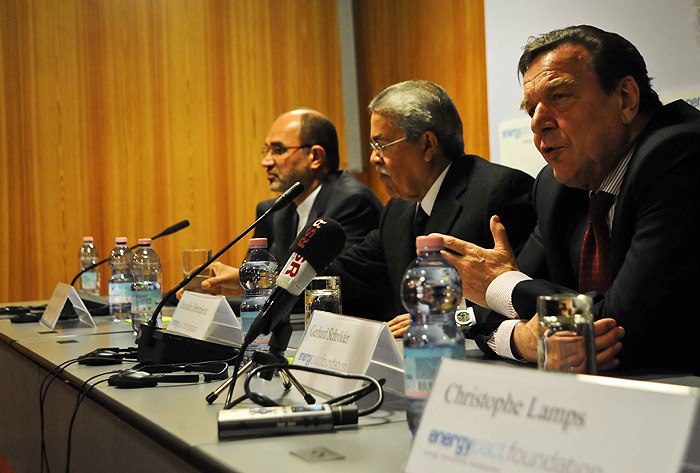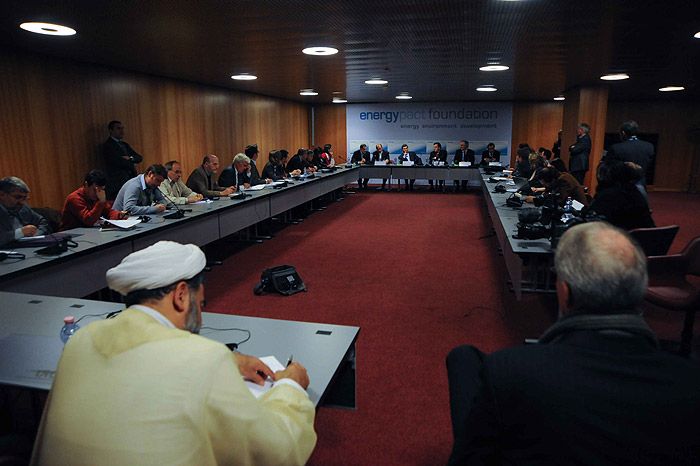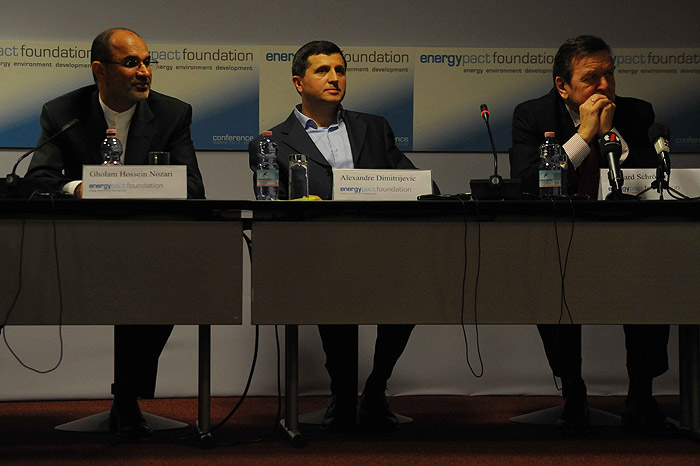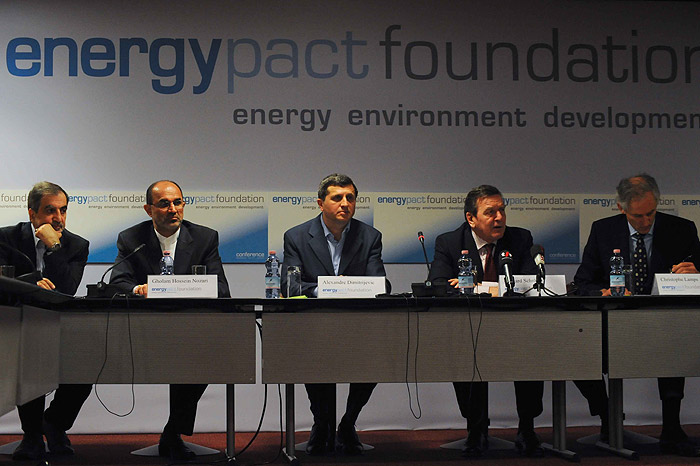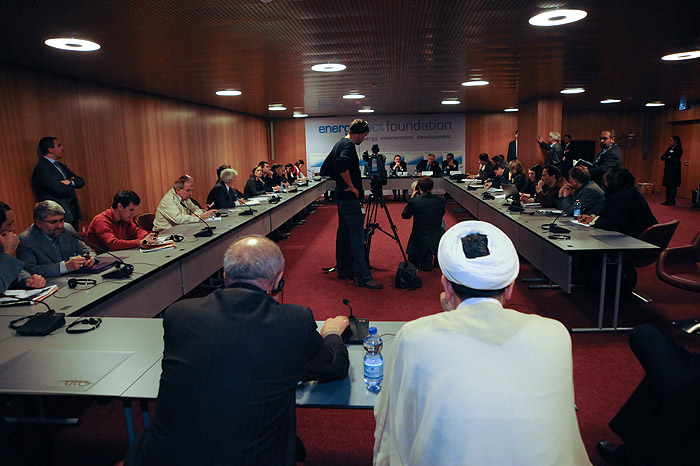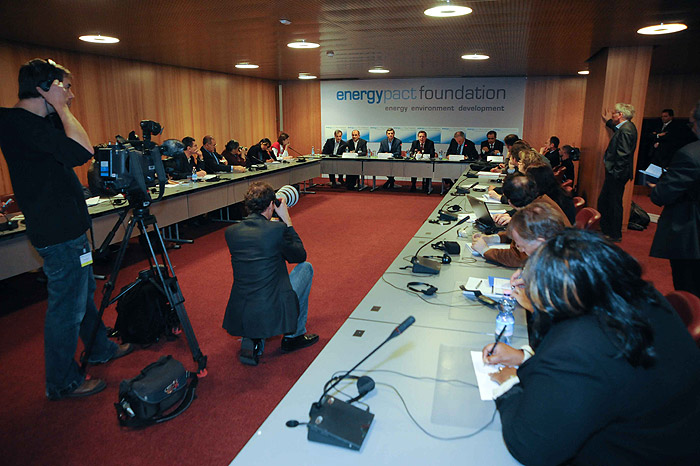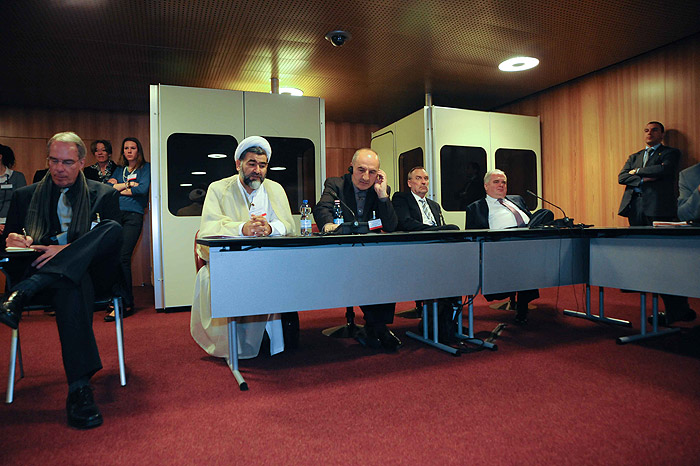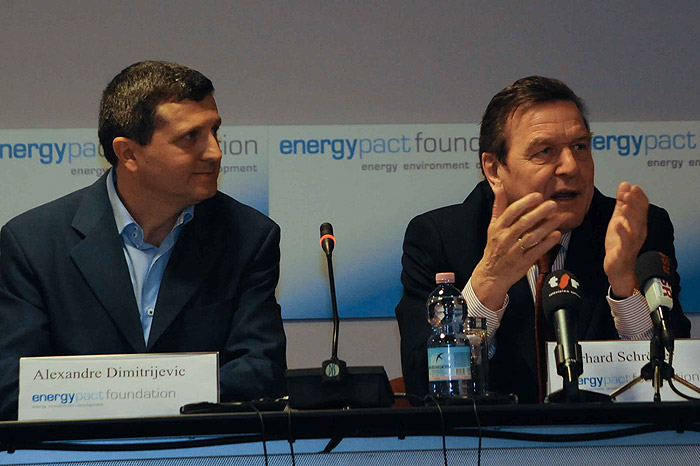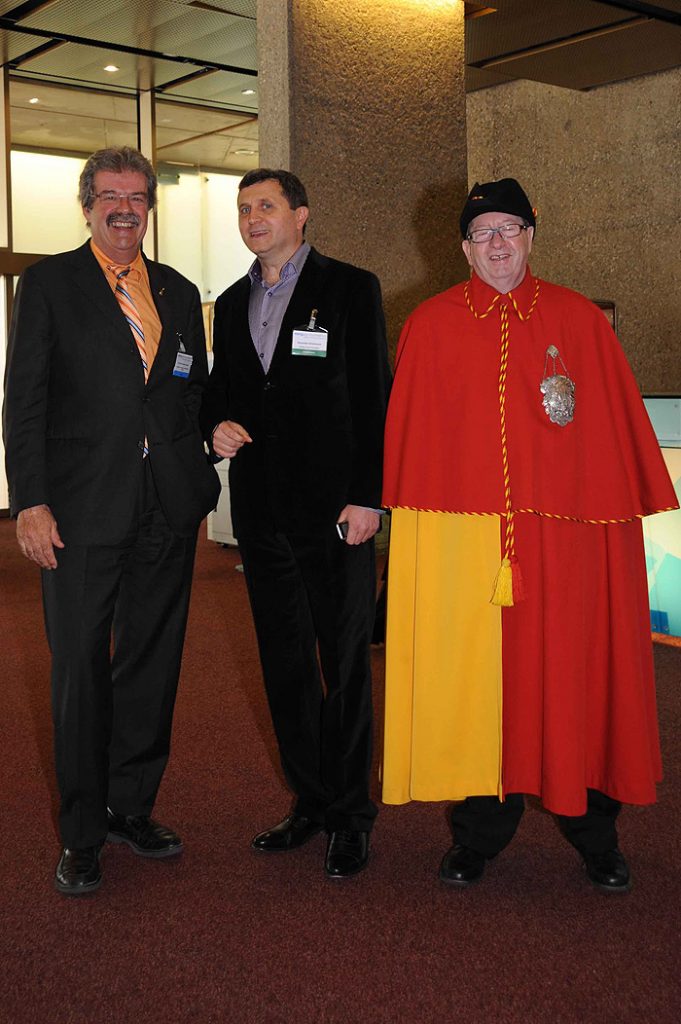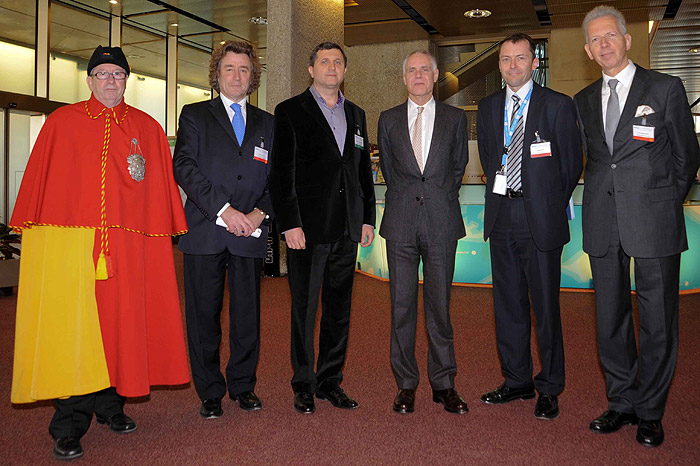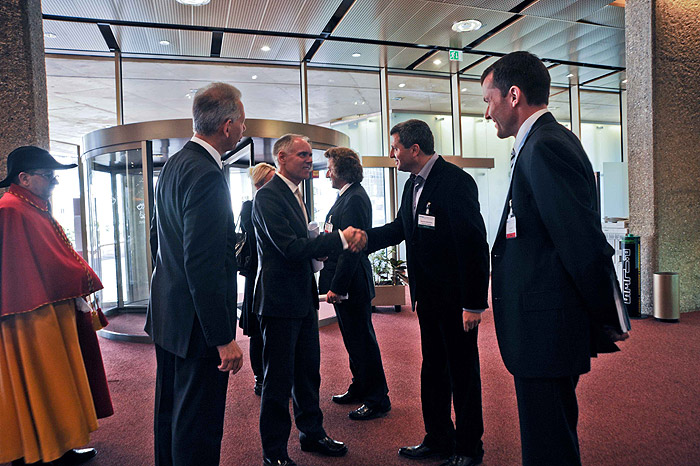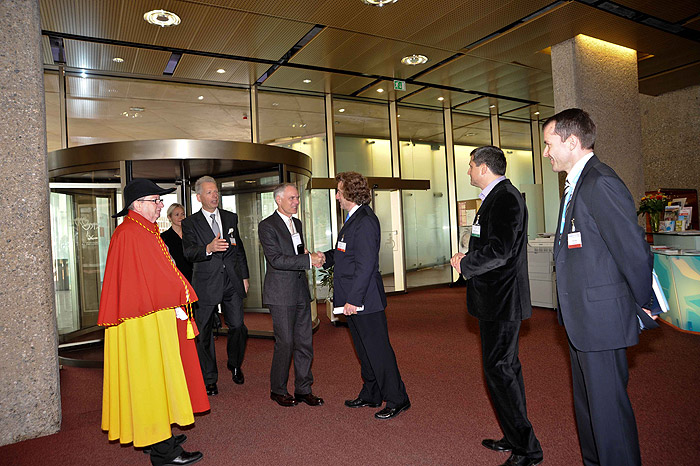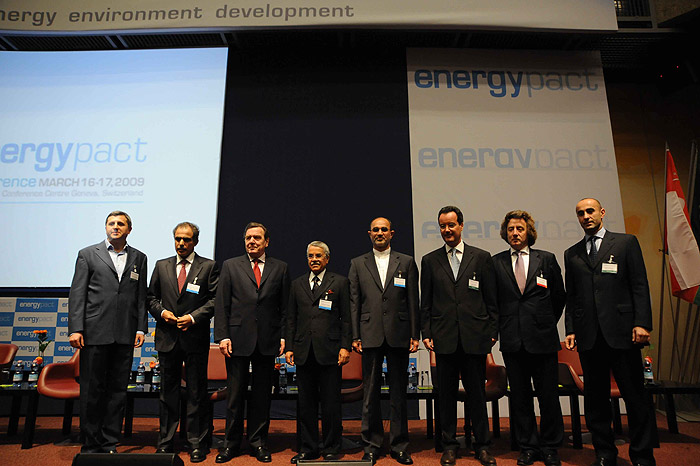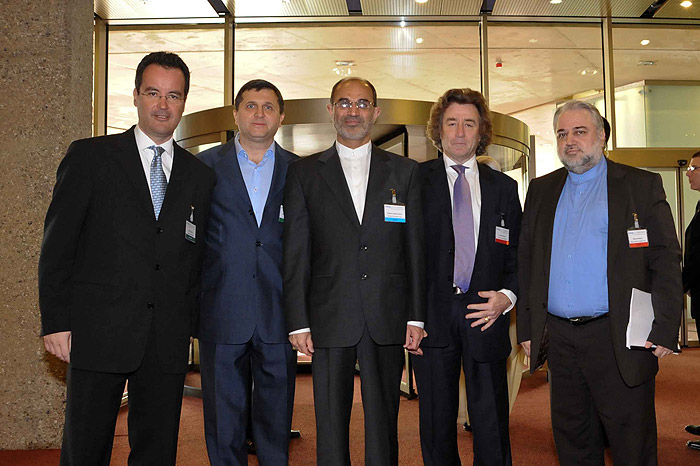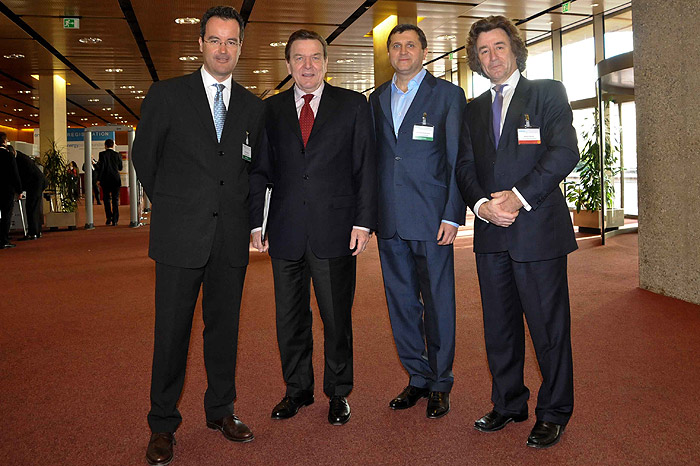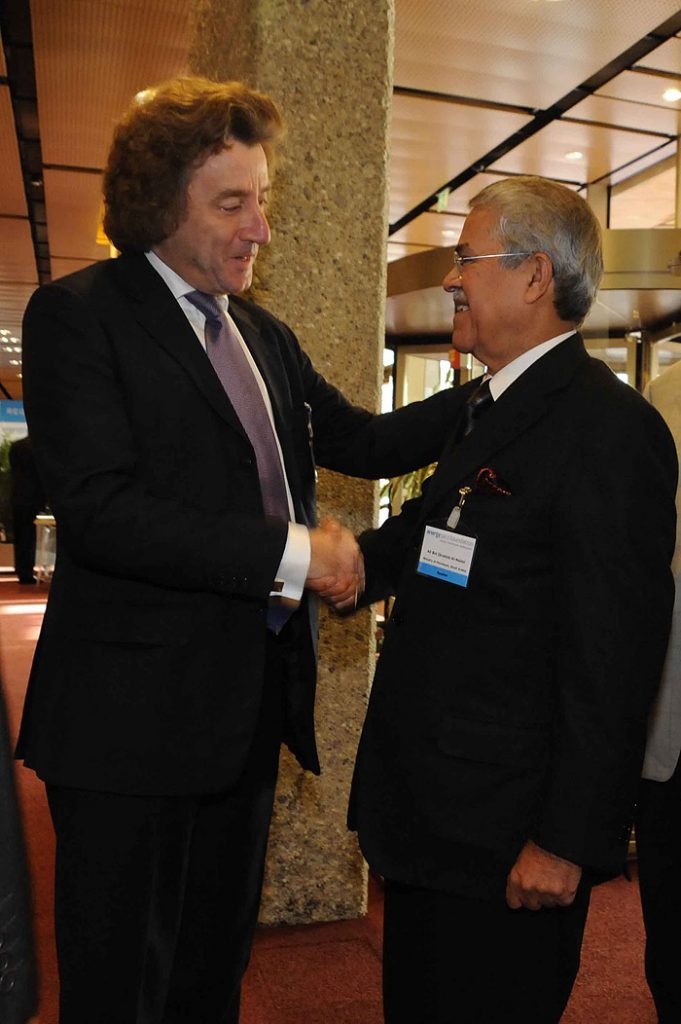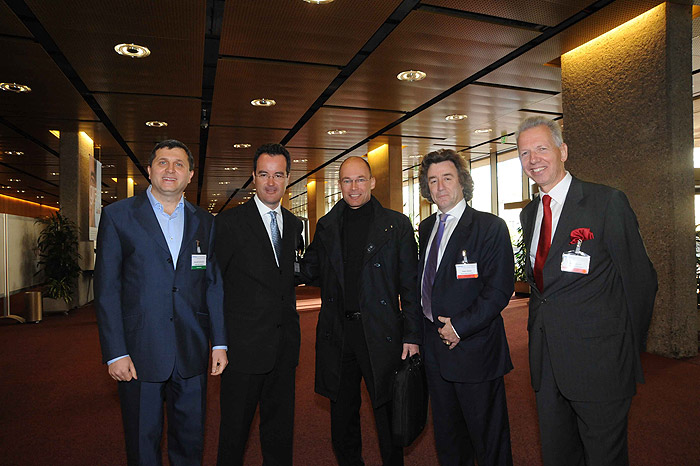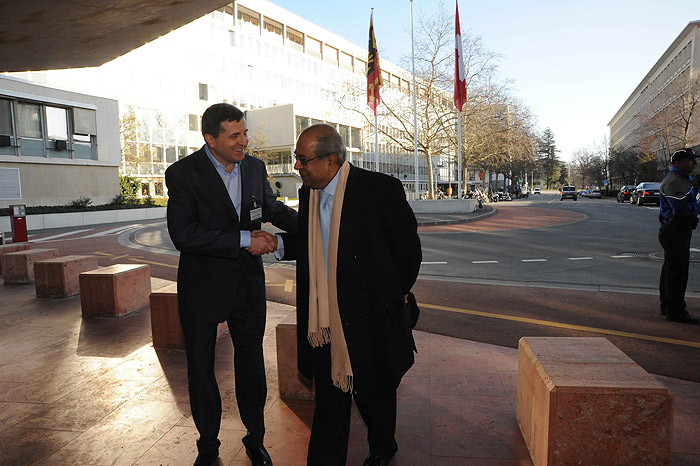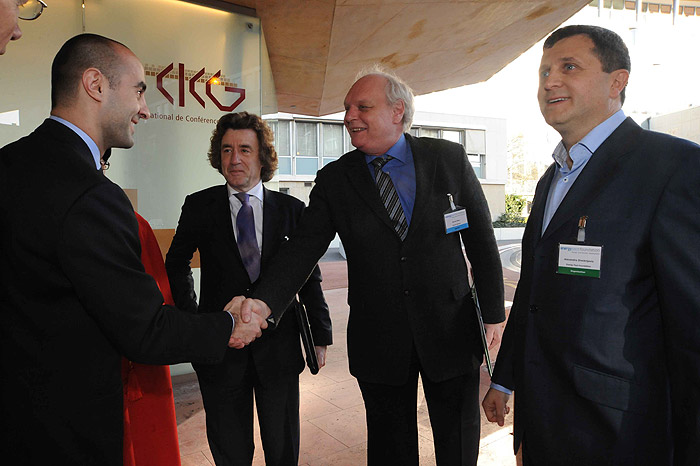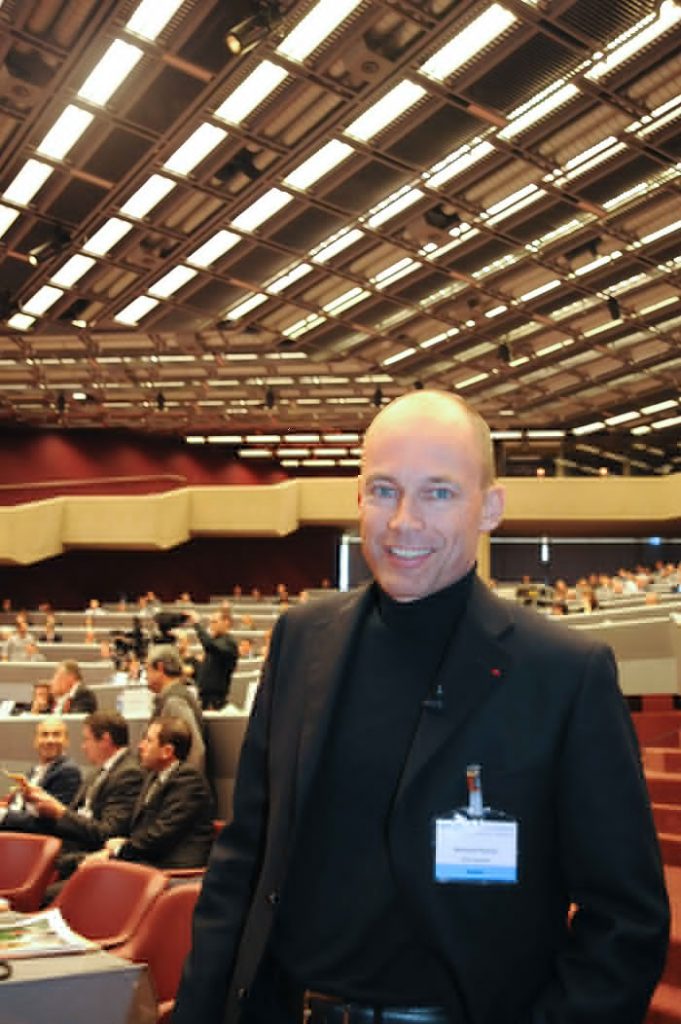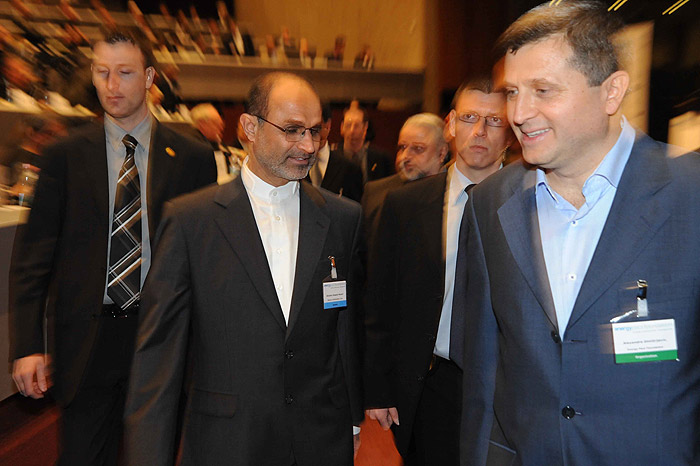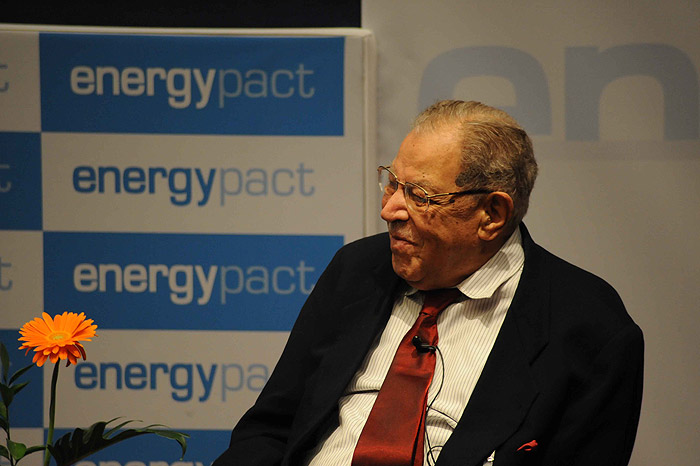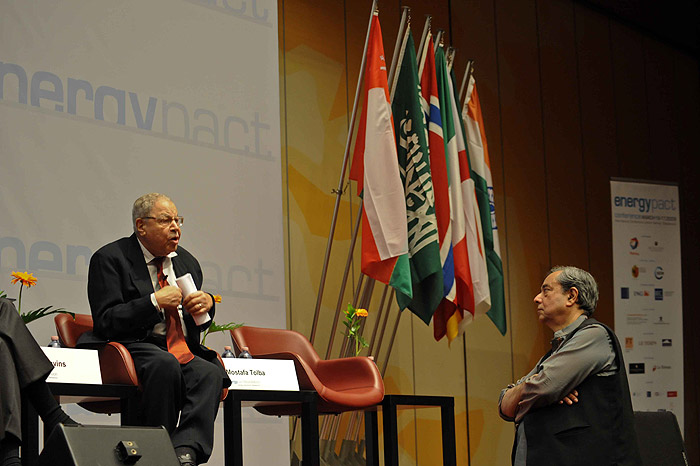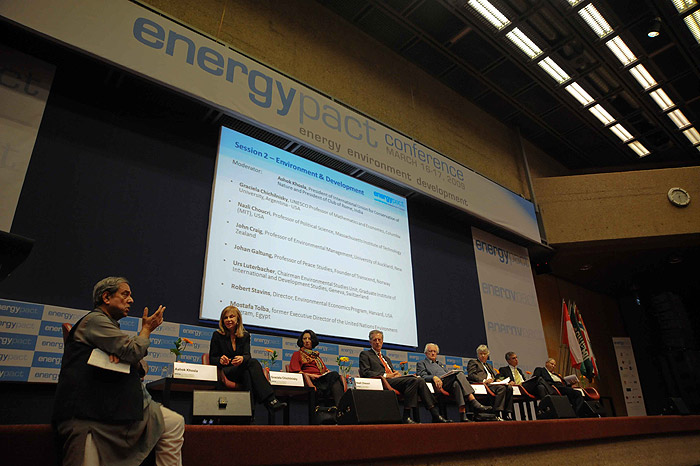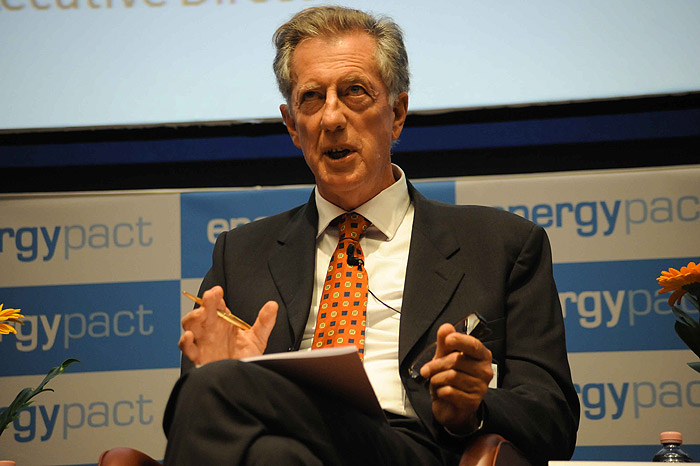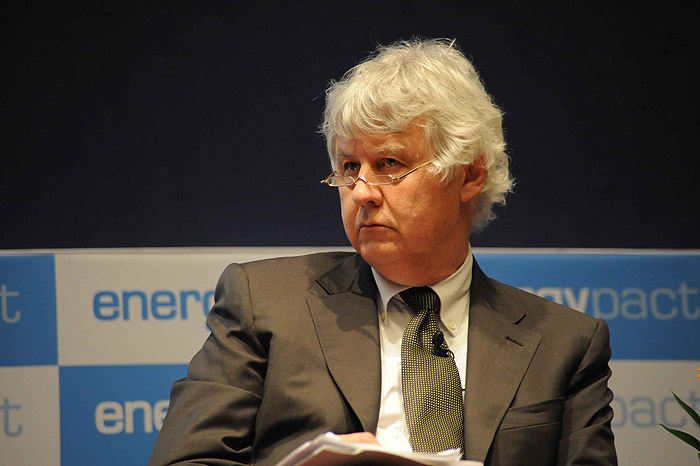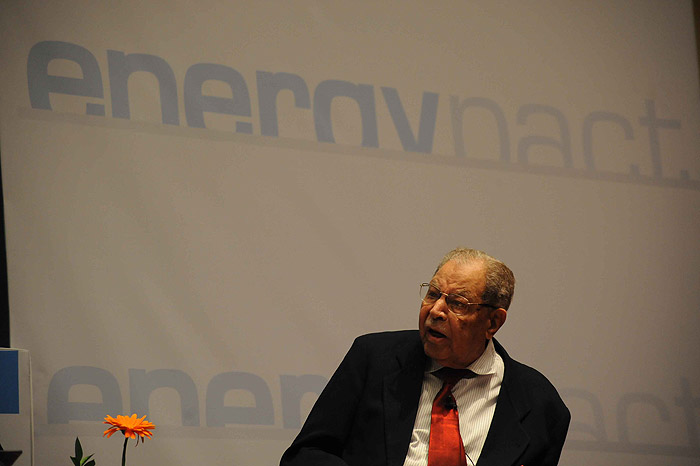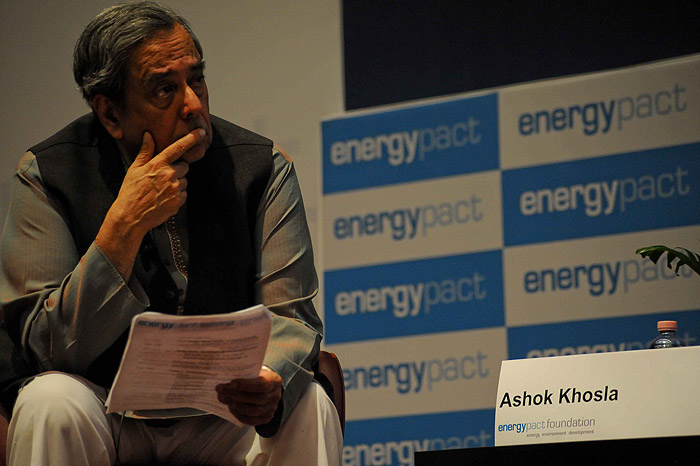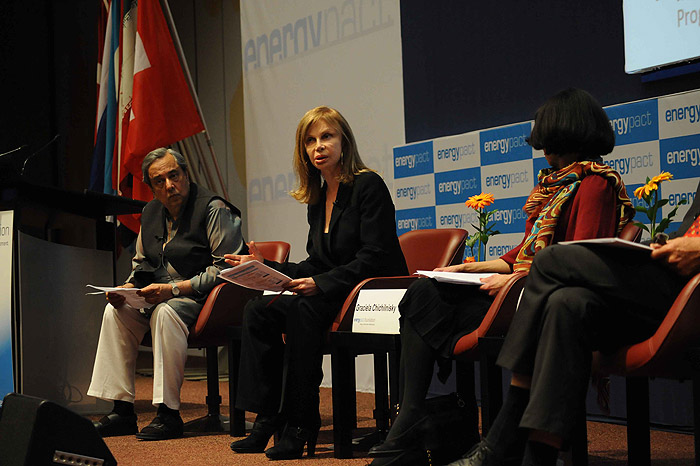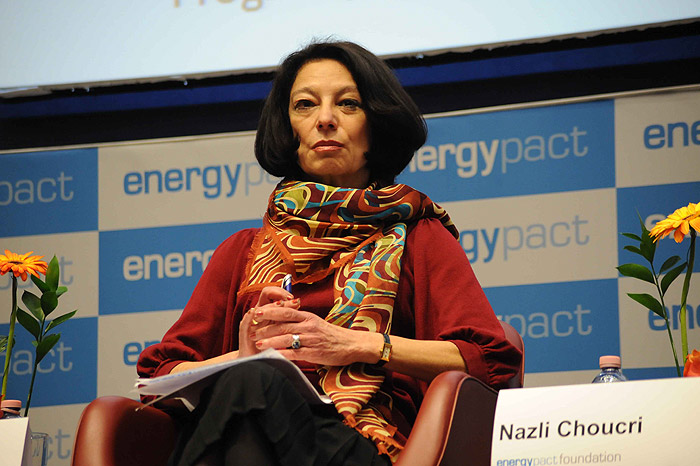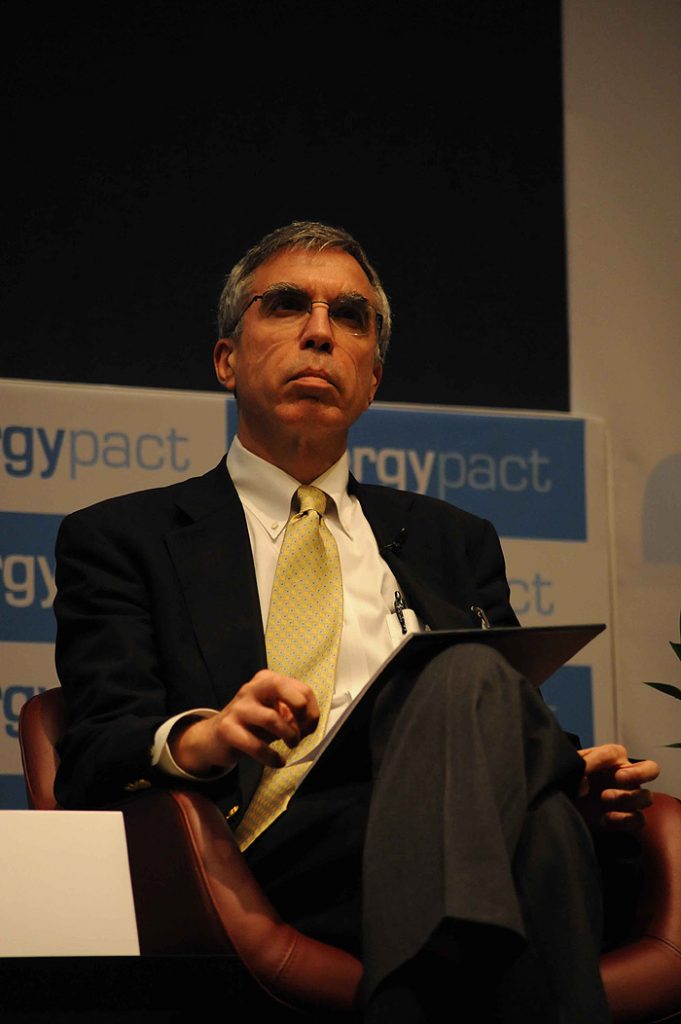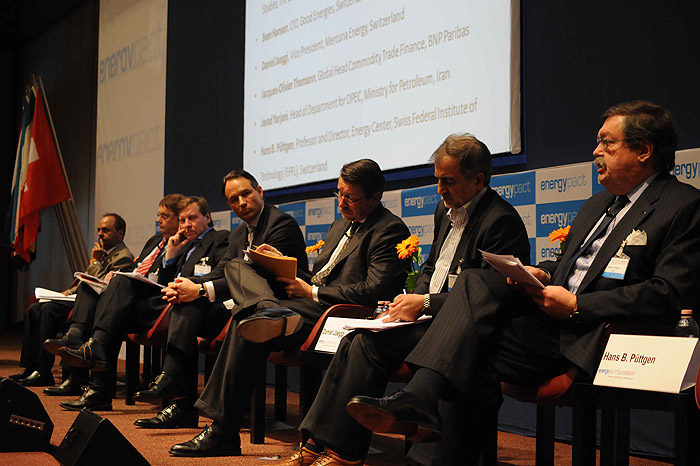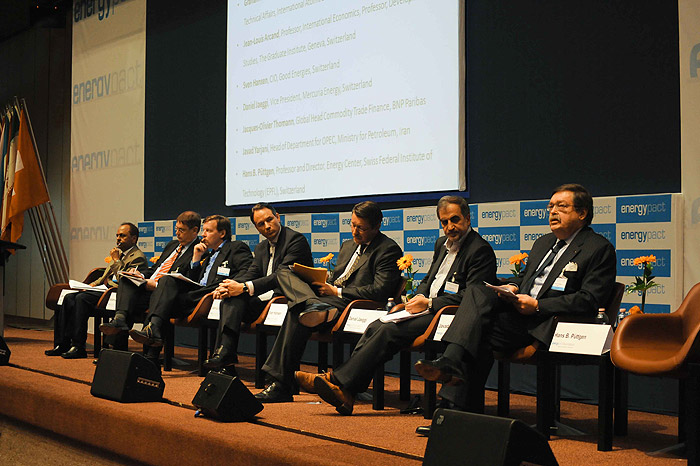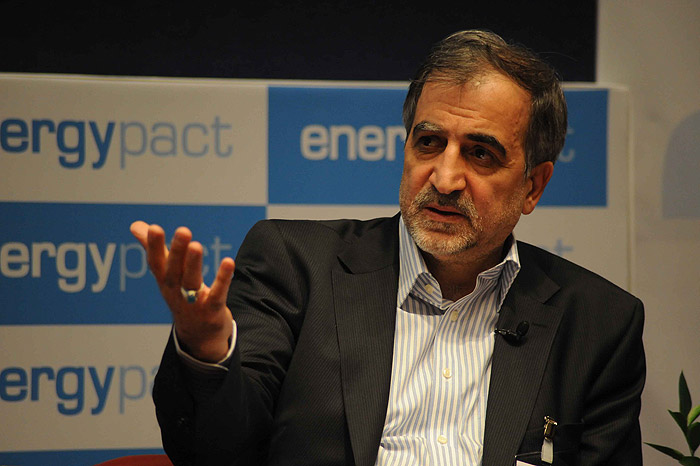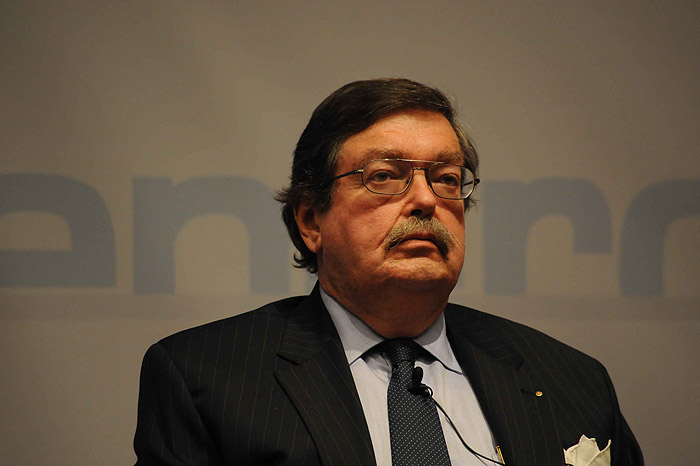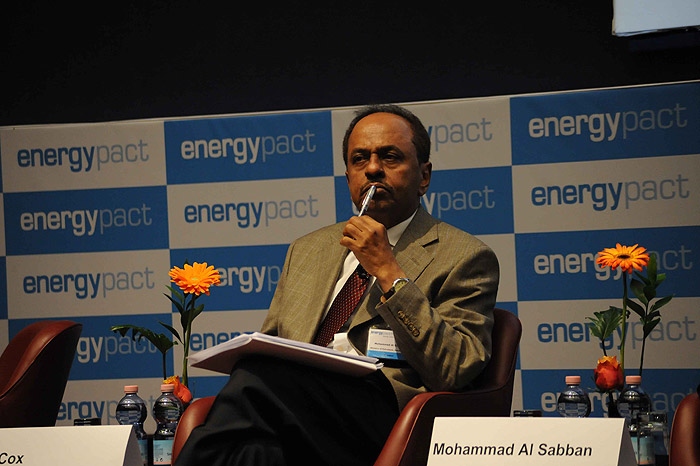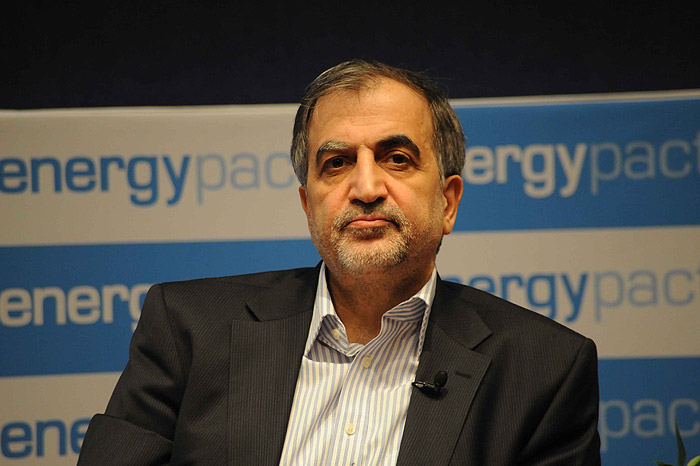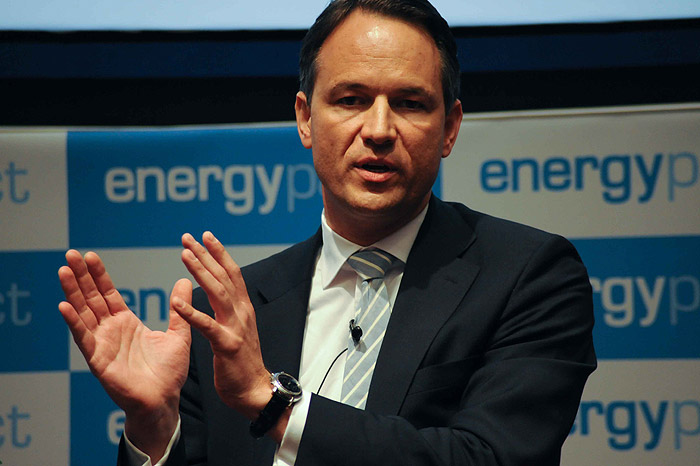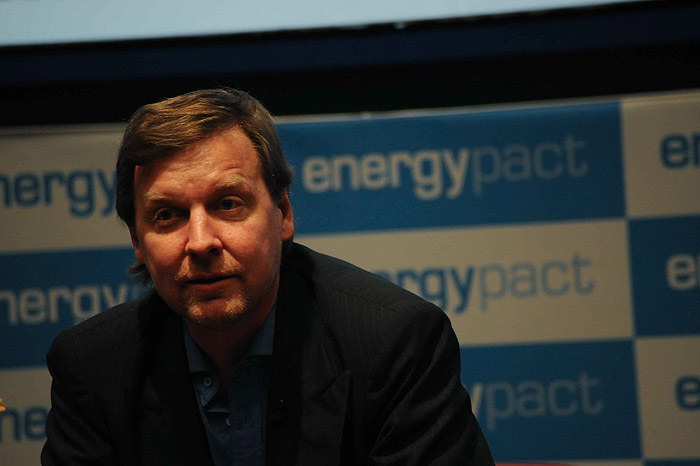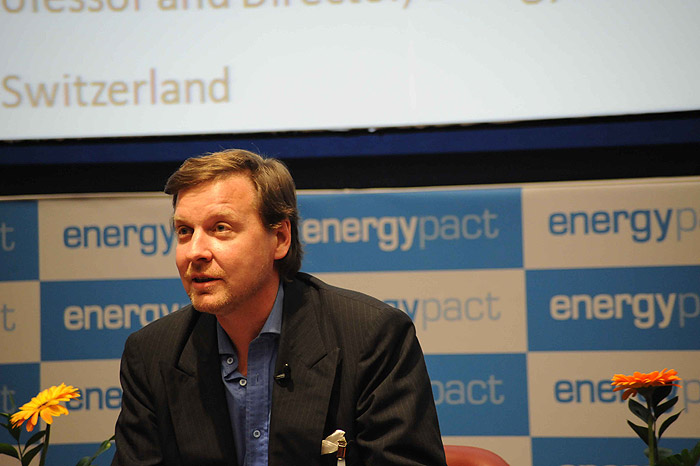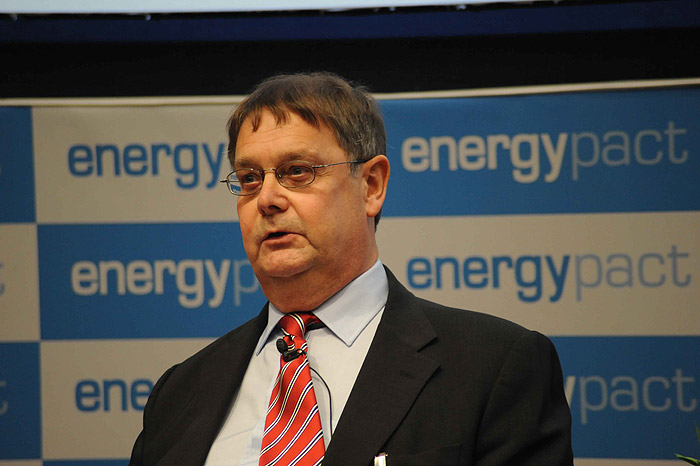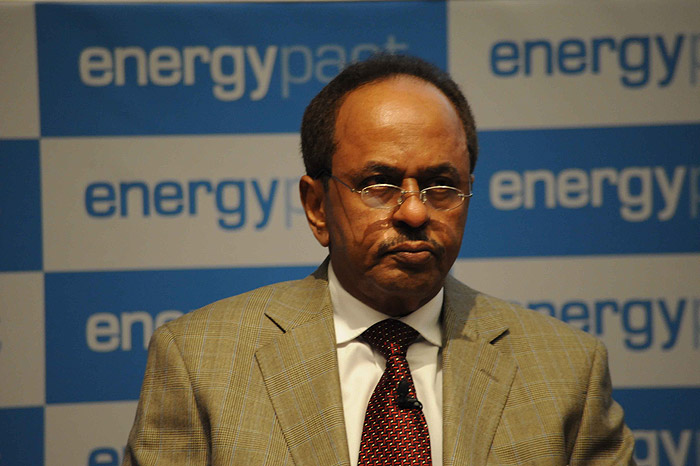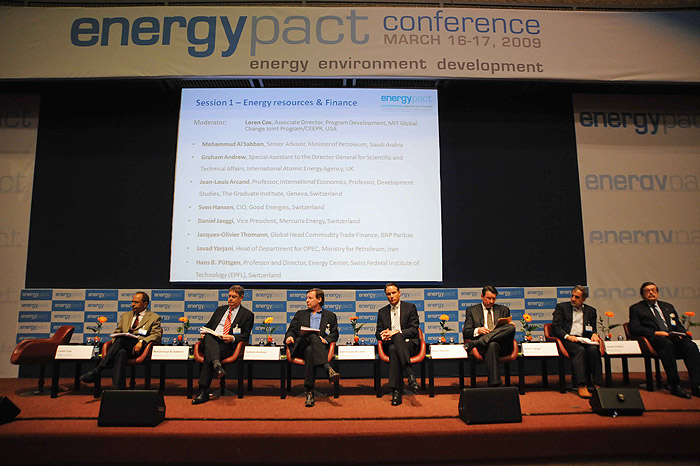First Annual Multi Stakeholder Conference
Energypact Inaugural Conference

The Energy Pact Foundation has been established to serve as a meeting point to facilitate the airing of the perspectives and interests of different communities and stakeholders — whether the North, the South, governments, international organizations, NGOs, business and finance, scholars, scientists, engineers, thinkers, and common citizens, in the hope that this will contribute to the evolving process of dealing with the energy-environment-development issues in an integrated manner and as a single global challenge.

We strongly believe that all together we will demonstrate that climate change can be transformed from one of mankind’s biggest perils into one of humanity’s most promising challenges.
Alexandre Dimitrijevic President of the Energy Pact Foundation
Monday, March 16
09:00 – 09:20 Welcome Introduction and Official Opening
- Alexandre Dimitrijevic, President, Energy Pact Foundation
- David Hiler, President, Government of the Republic and State of Geneva
- Supachai Panitchpakdi, Secretary-General of UNCTAD
- Sergei Ordzhonikidze, Director – General, United Nations office at Geneva
09:20 – 10:45 Plenary session “The path towards a sustainable, secure and efficient energy”
-
- Gerhard Schröder, Chairman, Energy Pact Conference, Former Chancellor of Germany
- Ali Al-Naimi, Minister of Petroleum and Mineral Resources, Saudi Arabia
- Gholam Hossein Nozari, Minister of Petroleum, Iran
- Mohammed Hamed Al Rumhy, Minister of Oil and Gas, Sultanate of Oman
- Pierre – Franck Chevet, Director of Climate and Energy, Ministry of Environment, France
10:45 – 11:00 Coffee Break 11:00 – 12:30 Plenary session – Key speakers – thematic issues “Needs and constraints for a global solution”
- ENERGY – Gary Ross, CEO, Pira Energy Group, USA
- ENVIRONMENT – Robert Stavins, Director, Environmental Economics Program, Harvard, USA
- DEVELOPMENT – Ashok Khosla, President of International Union for Conservation of Nature and President of Club of Rome, India
“Inventing another future”
- Bertrand Piccard, Chairman, Solar Impulse, Switzerland
12:30 – 14:00 Lunch 14:00 – 14:15 Plenary session – Key speakers – thematic issues (continuation)
-
- Carlo Rubbia, Nobel laureate, Physics 1984, Italy
- Jack Steinberger, Nobel laureate, Physics 1988, USA
Plenary sessions – thematic issues “Different perspectives on optimizing the energy mix. Panel discussions led by a moderator with representatives from different backgrounds” 14:15 – 16:00 Session 1 – Energy & Finance
- Moderator
- Loren Cox, Associate Director, Program Development, MIT Global Change Joint Program/CEEPR, USA
- Panellists
- Mohammad Al Sabban, Senior Advisor, Minister of Petroleum, Saudi Arabia
- Graham Andrew, Special Assistant to the Director General for Scientific and Technical Affairs, International Atomic Energy Agency, UK
- Jean-Louis Arcand, Professor, International Economics, Professor, Development Studies, The Graduate Institute, Geneva, Switzerland
- Sven Hansen, CIO, Good Energies, Switzerland
- Daniel Jaeggi, Vice President, Mercuria Energy, Switzerland
- Jacques-Olivier Thomann, Global Head Commodity Trade Finance, BNP Paribas
- Javad Yarjani, Head of Department for OPEC, Ministry for Petroleum, Iran
- Hans B. Püttgen, Professor and Director, Energy Center, Swiss Federal Institute of Technology (EPFL), Switzerland
16:00 – 16:30 Coffee Break 16:30 – 18:15 Session 2 – Environment & Development
- Moderator
- Ashok Khosla, President of International Union for Conservation of Nature and President of Club of Rome, India
- Panellists
- Graciela Chichilnisky, UNESCO Professor of Mathematics and Economics, Columbia University, Argentian – USA
- Nazli Choucri, Professor of Political Science, Massachusetts Institute of Technology (MIT), USA
- John Craig, Professor of Environmental Management, University of Auckland, New Zealand
- Johan Galtung, Professor of Peace Studies, Founder of Transcend, Norway
- Urs Luterbacher, Chairman Environmental Studies Unit, Graduate Institute of International and Development Studies, Geneva, Switzerland
- Robert Stavins, Director, Environmental Economics Program, Harvard, USA
- Mostafa Tolba, former Executive Director of the United Nations Environment Program, Egypt
Monday, March 17
09:00 – 10:30 Plenary session
- Outcome of interactive sessions – reports by moderators
- Joint interactive session
Energy & Finance and Environment & Development
- Moderators: Jean-Louis Arcand, Professor, International Economics, Professor, Development Studies, The Graduate Institute, Geneva, Switzerland
10:30 – 10:45 Coffee Break 10:45 – 13:00 Plenary session – Closing remarks Moritz Leuenberger, Swiss Federal Counselor, Head of the Federal Department of the Environment, Transport, Energy and Communications Hans Jorgen Koch, Deputy State Secretary, Ministry of Climate and Energy, Denmark Ernst Ulrich von Weizsäcker, Co-Chair, International Panel for Sustainable Resource Management, Germany “A prospective vision of our planet for our children” Johan Galtung, Professor of Peace Studies, Founder of Transcend, Norway Yang Dongliang, Executive Vice Mayor, Tianjin, China Pierre-François Unger, Counselor of State, Department of Health and Economy of Geneva Alexandre Dimitrijevic, President, Energy Pact Foundation
- Gerhard Schröder, Chairman, Energy Pact Conference, Former Chancellor of Germany – Download
- David Hiler, President of the Government of the Republic and State of Geneva – Download
- Moritz Leuenberger, Swiss Federal Counselor, Head of the Federal Department of the Environment, Transport, Energy and Communications – Download
- Ali Al-Naimi, Minister of Petroleum and Mineral Resources, Saudi Arabia –Download
- Gholam Hossein Nozari, Minister of Petroleum, Iran – Download
- Pierre – Franck Chevet, Director of Climate and Energy, Ministry of Environment, France – Download
- Carlo Rubbia, Nobel laureate, Physics 1984, Italy – Download
- Yang Dongliang, Executive Vice Mayor, Tianjin, China – Download
- Johan Galtung, Professor of peace studies, founder TRANSCEND, Norway – Download
- Hans Jorgen Koch, Deputy State Secretary, Ministry of Climate and Energy, Denmark – Download
- Bertrand Piccard, Chairman, Solar Impulse, Switzerland – Download
- Robert Stavins, Director, Environmental Economics Program, Harvard, USA – Download
- Ernst Ulrich von Weizsäcker, Co-Chair, International Panel for Sustainable Resource Management, Germany – Download
Speakers
A

Graham Andrew
Special Assistant to the Director General of the IAEA for Scientific and Technical Affairs, UK
After graduating with a first class honours degree in chemistry, Graham Andrew worked initially for the U.K. Ministry of Defence at the Atomic Weapons Establishment, Aldermaston, concerning underground nuclear testing. At the UKAEA’s Harwell Laboratory, he led work on the development of radiometric instrumentation for the NDA of nuclear materials in bulk handling plants. The primary focus of these studies was the development of K Edge densitometry and X ray fluorescence, and differential die away neutron interrogation techniques. At the U.K.’s Department of the Environment, he was responsible for the U.K.’s long term research and development programme concerning the management and disposal of radioactive wastes. He then moved to the National Physical Laboratory, U.K.’s national standards laboratory, as head of the Radiation Dosimetry Branch in 1986. He was then head of the U.K. Safeguards Office in the Department of Trade and Industry, and was chairman of the IAEA’s Standing Advisory Group Oil Safeguards Implementation from 1996 to 2001. Since September 2001 he has been a Director in the IAEA as Special Assistant for Scientific and Technical affairs to the Director General, Mohamed Ei Baradei.
C

Pierre – Franck Chevet
Director of Climate and Energy, Ministry of Environment, France

Graciela Chichilnisky
UNESCO Professor of Mathematics and Economics, Columbia University, Argentina – USA
Graciela Chichilnisky is a world renowned economist and mathematician. She is the creator of the carbon market of the Kyoto Protocol, and Basic Needs as the cornerstone of Sustainable Development – both of which are now enshrined in international law since 1992 and 1997. She is also the creator of financial instruments known as “catastrophe bundles”, which are widely used in the reinsurance industry. A chaired professor at Columbia University for many years, she advises national governments and international organizations such as the United Nations, the IMF, and the World Bank, and has been the founder and CEO of two global financial companies in New York, London and Tokyo. A prolific author she has taught at Harvard and Stanford Universities, held the Keynes Chair at the University of Essex in the UK, and her most recent books are “Saving Kyoto” New Holland and “Beyond the Global Divide: from Basic Needs to the Knowledge Revolution” Yale University Press, both to appear in 2009.

Nazli Choucri
Professor of Political Science, Massachusetts Institute of Technology (MIT), USA
Nazli Choucri, Professor of Political Science at the Massachusetts Institute of Technology, serves as Associate Director of the Technology and Development Program at MIT. The author of nine books and over 120 articles, Dr. Choucri’s core research focuses on international conflict and potentials for collaboration in international relations. Largely interdisciplinary, work in includes analyses of sustainability challenges, notably political risks related to energy and technology, instabilities in the world oil market, strategies for non-renewable energy, and challenges inherent in technology transfer and change. In recent years Professor Choucri has focused on innovations in global knowledge networking. As the founding Director of MIT’s Global System for Sustainable Development (GSSD), she manages an evolving multilingual knowledge networking system that is mirror-sited in several locations. Her recent work includes the co-edited volume on Mapping Sustainability: Knowledge e-Networking and the Value Chain of the Alliance for Global Sustainability Bookseries – for which she authored several chapters. Professor Choucri’s international experience includes advising and consulting in over 25 countries, as well as working with numerous national and international organizations. Her current research explores new challenges and opportunities in international relations created by the ubiquity of cyberspace and the emerging attention to cyber security.

John Craig
Professor of Environmental Management, University of Auckland, New Zealand
John L. Craig is Professor of Environmental Management at the University of Auckland, New Zealand. His teaching and research focus relates to sustainability and biodiversity management. He was head of the former School of Environmental & Marine Sciences. Trained as an ecologist, Professor Craig also has business training and works with companies enhancing sustainability planning. He is a guest Professor in sustainability for the MBA program at Otago University and has taught in the sustainability program at BTH in Sweden. Dr. Craig is the former Chair of TNS New Zealand and a member of the International Committee of The Natural Step. TNS is an international sustainability movement based on science that has offices in 11 countries. Dr. Craig was the designer of the internationally renowned restoration site of Tiritiri Island in New Zealand. He is currently the manager of a large private restoration and tourism business. He also regularly consults for government, company and community projects that have major environmental concerns. Dr. Craig has authored more than 100 publications, served on a number of Boards and Trusts and received a number of international and national honours for his contribution to the environment.
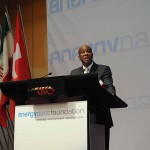
Loren Cox
Associate Director, Program Development, MIT Global Change Joint Program/CEEPR, USA
Mr. Cox is the Associate Director of the Joint Program on the Science & Policy of Global Change, and the Center for Energy & Environmental Policy Research (CEEPR) at the Massachusetts Institute of Technology (MIT). His professional career began in the developing world with the US Peace Corps with overseas tours in Nigeria and Korea (ROK), plus two tours at headquarters with program travel throughout Africa and Asia. His last post was Deputy Director, East Asia & Pacific Region. His energy activities began in the US Congress as Energy Staff of the tax & trade committee of the US. House. In 1978, Mr. Cox was invited to start CEEPR and to lecture at the MIT Sloan School of Management. He then went to Columbia University’s Lamont-Doherty Earth Observatory as Director for Planning in 1986. In 1995 he returned to MIT where he continues his work with CEEPR, as well as for the Global Change research program. Since 1978, he also has advised companies and governments in North America, Europe and Asia on energy market and environmental policy matters.
D
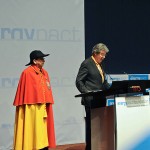
Yang Dongliang
Executive Vice Mayor, Tianjin, China
Yang Donliang was born in January 1954 in Hebei Province. He graduated from the Central Party School, majoring in political science. He is now a Vice Mayor of Tianjin Municipality. He worked in the No. 1 Drilling Department of Dagang Oilfield successively as a vice political director, director, vice commissioner, vice chairman, vice CPC Secretary of the Political Department; Deputy CPC Secretary and concurrently chairman of the political department of the No. 3 Exploration Department of North China Oilfield, deputy CPC Secretary of North China Oilfield Administration, CPC Secretary, Manager of No.1 Drilling Company under the Central Plains Oil Exploration Bureau, Vice Commander of Headquarters in charge of construction of the central plains petrochemical project. He became a deputy general manager in 1994 of the Tianjin United Chemicals Company LTD. In 1996 he assumed the position of deputy director of Tianjn Economic Commission. From August 1997 to June 1998 he was CPC Secretary of Tianjin Electric and Machinery Industry General Corporation. In July 1998 he became Director of Tianjin Economic Commission, CPC vice secretary of the Working Committee under CPC Tianjin Committee. He became Vice Mayor of Tianjin Municipality in March 2001.
G

Johan Galtung
Professor of peace studies, founder TRANSCEND, Norway
Johan Galtung, dr hc mult, professor of Peace Studies, founder of TRANSCEND: A Network for Peace and Development, is the author of close to 250 books. He has mediated around the world in more than one hundred conflicts (50 Years: 100 Peace & Conflict perspectives, and 50 Years: 25 Intellectual Landscapes Explored, both TRANSCEND University Press 2008, www.transcend.org/tup). Born 1930 in Oslo, Norway he graduated with a PhD in mathematics in 1956 and obtained a PhD in Sociology 1957. He founded the International Peace Research Institute, Oslo in January 1959. He founded the Journal of Peace Research in 1964.
H

Sven Hansen
CIO, Good Energies, Switzerland
Sven Hansen studied at the Universities of St. Gallen and Basel. He earned his Ph.D. in 1992 at the University of St. Gallen on environmental risk management in the financial sector. His work has been published in several books and numerous articles in leading newspapers and business magazines. From 1991 to 1996 he was responsible for the development and implementation of UBS’s global environmental policy and risk assessment systems and Global Head of Environmental Risk Management for UBS Group. He was the Chief Financial Officer for Intels Group, an energy logistics company based in London and with operations in West Africa. Dr. Sven Hansen is Chief Investment Officer of Good Energies, a leading global investor in renewable energy and energy efficiency industries.
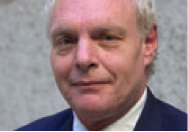
David Hiler
President, Government of the Republic and State of Geneva
David Hiler was born on 18 June 1955. He is a State Councillor and is in charge of the Department of Finance. During one year, he held the position of Vice-President of the Council of State (Dec. 2007 – Dec. 2008) and is currently serving as President of the Council of State of Geneva. He was elected by the Green party in 2005 and was appointed Treasurer. From 1993 to 2005 he occupied the position of Deputy of the Grand Council of Geneva, and had previously served as Municipal Councillor for the Ville de Genève (city of Geneva). A former secondary school teacher and university lecturer, David Hiler is a graduate from the University of Geneva (Degree in Economic and Social Sciences, specialisation in Economic History).
J

Daniel Jaeggi
Vice President, Mercuria Energy, Switzerland
Daniel Jaeggi is Group Vice President and Head of Global Trading for Mercuria Energy Group. A Swiss citizen, he co-founded Mercuria Energy Trading S.A. in 2004. D. Jaeggi directed the launch of Sempra Oil Trading SARL in Europe, where he was responsible for all trading operations in Europe and Asia. From 1994-99, he directed trading operations at Salomon Brothers in London, covering Europe and Asia. From 1987-94, at Goldman Sachs’ J.Aron division, D. Jaeggi traded crude oil and petrochemical feedstocks, D. based in London. Prior to that, he was at Cargill International S.A. in Switzerland, responsible for trading Naptha and LPG. D. Jaeggi studied political science at the Institut d’Etudes Politiques in Paris, the University of Geneva and the Institut des Hautes Etudes Internationales. He holds a Masters degree in Political Science from HEI.

Idriss Jazairy
Ambassador of Algeria, UN, Geneva
Born in 1936, Mr Jazaïry is a graduate of Oxford University, Harvard University and the Ecole Nationale d’Administration in Paris. He began his diplomatic career in 1963 at the Permanent Mission of Algeria to the UN in New York. Between 1964 and 1972 he occupied various positions in the Algerian Ministry of Foreign Affairs (Chief of the economy division and Director of Economic, Social and Cultural Affairs). From 1972 to 1978 he served as the Presidential Counselor in charge of economic and international affairs. Starting in 1984, he was President of the International Fund for Agricultural Development for nine years. Between 1993 and 1999, he was Executive Director of ACORD (Agency for Cooperation and Research in Development). Before his nomination in Geneva, Mr Jazaïry had been serving as Ambassador of Algeria in the United States since 1999 (he had previously held the position of Ambassador of Algeria in Belgium from 1979 to 1982).
K
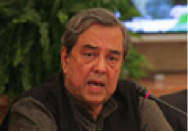
Ashok Khosla
President of International Union for Conservation of Nature and President of Club of Rome, India
Since 1983, Ashok Khosla has been Chairman of Development Alternatives, a social enterprise headquartered in New Delhi, dedicated to global, national and local sustainable development through innovtion of technologies, institutions and policies. Earlier, he set up and headed the Office of Environmental Planning and Coordination, Govt of India – the first national environmental agency in the South. Subsequently he was Director of INFOTERRA, the global information system of the UN Environment Programme. He served as Special Advisor to the Brundtland Commission and as advisor to the United Nations, World Bank, GEF and various other inter-governmental and government agencies. He is currently President of IUCN and also President of the Club of Rome. He has served on several international boards, including the Worldwide Fund for Nature (WWF), EXPO 2000 in Hannover, IISD, SEI, ANH; also WEF NGO Council and the World Future Council. Mr. Khosla has been member of the National Security Advisory Board, the Science Advisory Council to the Cabinet and the National Environment Council of the Government of India. He is an Officer of the Order of the British Empire (OBE) and has won the United Nations Sasakawa Environment Prize 2002, the premier global prize in the field, awarded by the UN Secretary General. He also received the Klaus Schwab Outstanding Social Entrepreneur Award, UN Global 500 Award, Stockholm Challenge Award, and the Nehru Award for Popularising Science. Ashok Khosla graduated from Cambridge University and received his doctorate in experimental physics from Harvard University. He lectured at Harvard on physics, astronomy and environment. More recently, he has been giving lectures at the Universities of Yale, MIT, Oxford, Turin, Leiden, JNU, and IITs. He has authored more than 300 papers and articles.
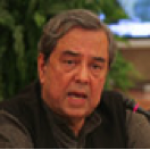
Born in 1946, Mr. Koch graduated in 1972 with an LL.M. (Master of Laws) from the University of Copenhagen. He was Head of section at the Ministry of Industry, Trade and Shipping of Denmark for six years before becoming Director in 1979. He continued to become Director of Denmark’s Ministry of Industry between 1979 and 1982, and occupied the position of Director General until 1994. He served as the Head of Denmark’s Delegation to the annual General Conference of the International Atomic Energy Agency (IAEA) and was a Member of the Steering Committee of the Nuclear Energy Agency (OECD/NEA) between 1981 and 1994 and was twice Governor of the IAEA. He was Head of the Danish Delegation to the Governing Board of the International Energy Agency (IEA/OECD) and Denmark’s representative in the European Union High-Level Council Groups on Energy (1980-1994). From 1994 to 2002 he held the position of Director of Energy Efficiency, Renewables, Technology and R&D at the International Energy Agency (IEA/OECD), Paris. He then served as Deputy State Secretary at the Ministry of Economic and Business Affairs (2000-2005). For two years subsequently to that, he worked as Deputy State Secretary at the Ministry of Transport and Energy, Danish Energy Agency. Since 2007 he is Deputy State Secretary at the Ministry of Climate and Energy, Danish Energy Agency.
L

Moritz Leuenberger
Swiss Federal Counselor, Head of the Federal Department of the Environment, Transport, Energy and Communications
Moritz Leuenberger was born in Biel on 21 September 1946. Following his law studies in Zurich he ran a legal practice there until 1991. Between 1972 and 1980 he was president of the city’s Social Democratic Party and was a member of the city parliament from 1974 to 1983. Moritz Leuenberger was elected to the National Council in 1979 and was a member of Zurich’s cantonal government from 1991 to 1995. Since his election to the Federal Council on 27 September 1995, he has headed the Federal Department of the Environment, Transport, Energy and Communications (DETEC). Moritz Leuenberger first served as President of the Swiss Confederation in 2001 and held the office again in 2006. Leuenberger’s main political focus has been on developing sustainable transport and climate policies. His efforts to transfer goods traffic from the roads to the rails earned him an honorary doctorate from the University of Udine in 2001. In order to reduce Switzerland’s CO2 emissions, parliament approved an incentive tax on fossil fuels, which entered into force at the beginning of 2008.
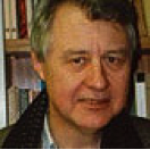
Urs Luterbacher
Chairman Environmental Studies Unit, Graduate Institute of International and Development Studies, Geneva, Switzerland
Urs Luterbacher has been Professor of Political Science at the Graduate Institute of International and Development Studies since 1973. He has done work on problems of international conflict and cooperation and international environmental problems using formal models and game theory. He is the author/co-author of, among other works, “Dynamic Models of International Conflict”, “Cooperative Models in International Relations Research” and “Pathways of Understanding: The Interactions of Humanity and Global Environmental Change” and numerous articles on international, political and environmental problems. He is also a member of ProClim the Forum for Climate and Global Change of the Swiss Academy of Sciences and of the Consultative Organ on Climate Change, a committee set up by the Swiss Academy of Sciences to advise the Swiss government on climate change. He is currently involved in an international research project concerned with the peaceful allocation and distribution of fresh water resources in the Middle East. He has completed a book “The International Politics of Climate Change” (co-authored with Detlef Sprinz) which was published by MIT Press in 2001.
N

Gholam Hossein Nozari
Minister of Petroleum, Iran
Gholamhossein Nozari was born in 1954 in Kazeroon, Iran. He is currently the Minister of Petroleum of Iran (since November 2007). He holds a BS in Petroleum and Earth Science Engineering from Shahid Chamran University, Ahwaz and an MA in Management from Tehran University. During his career, he held many positions: he was a Member of Recruitment, Director of the National Iranian South Oil Company (NISOC), Manager of Production, Expansion Schemes, Petroleum Engineering and Development Company. He sat on several boards: he was a Member of the Board, Director of the Petroleum Engineering and Development Company, Chairman of the Board, Director of the National Iranian Drilling Company (NIDC), Chairman of the Board, Director of the North Drilling Company, Managing Director of the Iranian Central Oil Fields Company (ICOFC) and Member of Parliament, Vice Chair of the Energy Committee (1992–96). He served as Deputy Minister of Petroleum and Managing Director of National Iranian Oil Company (NIOC). He was Acting Minister of Petroleum between August and November 2007.
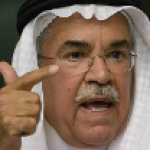
Ali Al-Naimi
Minister of Petroleum and Mineral Resources, Saudi Arabia
H.E. Ali Ibrahim Al-Naimi was appointed Minister of Petroleum and Mineral Resources on August 2, 1995. Prior to that Mr. Al-Naimi was the President and Chief Executive Officer of the Saudi Arabian Oil Company (Saudi Aramco). He was born in 1935 in Saudi Arabia’s Eastern Province. In 1947, at the age of 12, Mr. Al-Naimi started working for what was then Aramco, the Arabian American Oil Company. In 1953, after two years of full-time schooling sponsored by the company, he became an assistant geologist in Aramco’s Exploration Department. In training programs between 1956 and 1963, he studied at International College in Beirut and the American University of Beirut before attending Lehigh University in Pennsylvania and Stanford University in California. He received a BS degree in geology from Lehigh University in 1962 and an MS degree in the same subject from Stanford University in 1963. On his return to Saudi Arabia, he worked from 1963 to 1967 in Aramco’s Exploration Department as a hydrologist and a geologist. From 1967 to 1969 he worked in the company’s Economics and Public Relations Departments and the Abqaiq Producing Division. He rose through the ranks of the company’s oil operations in the Eastern Province, from foreman to assistant superintendent, and from superintendent to manager. He became a vice president in 1975, a senior vice president in 1978, and was elected an Aramco director in 1980. In 1982, Mr. Naimi became executive vice president, Operations. He became company president in 1984 and chief executive officer in 1988.
O

Sergei Ordzhonikidze
Director – General, United Nations office in Geneva
Mr. Sergei Ordzhonikidze was appointed to the post of Director General by the Secretary General, Mr. Kofi Annan, and took up his post on 1 March 2002. A career diplomat, Mr. Ordzhonikidze joined the Soviet diplomatic service in 1969, and was posted to the Permanent Mission of the Soviet Union to the United Nations in New York where he worked until 1975. He then served as Assistant to the Deputy Foreign Minister in Moscow until 1978 when he returned to the Permanent Mission of the USSR to the United Nations in New York, first as Counsellor and then as Senior Counsellor, until 1983. Returning to Moscow in 1983, he was appointed Deputy Chief of the International Legal Department of the Ministry of Foreign Affairs, a post he occupied until 1991. From 1991 to 1996 he served as Deputy Permanent Representative of the USSR and then of the Russian Federation to the United Nations in New York. 1996 saw his return to Moscow, where he held the position of Director of the Department of International Organizations of the Ministry of Foreign Affairs, until 1999 when he was appointed Deputy Minister of Foreign Affairs. Mr.Ordzhonikidze graduated from the Moscow State Institute of International Relations in 1969, and in 1978 completed his post-graduate studies in International Law at the Diplomatic Academy of Moscow. He holds the diplomatic rank of Ambassador Extraordinary and Plenipotentiary and has received several State Awards. Throughout his diplomatic career, Mr. Ordzhonikidze has served as head of the delegations of the Russian Federation to a great many international conferences and bilateral negotiations. He has also had many works published on international and legal affairs.
P
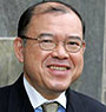
Supachai Panitchpakdi
Secretary-General of UNCTAD
Dr. Supachai Panitchpakdi began his four-year term as Secretary-General of UNCTAD on 1 September 2005, following his appointment by the UN General Assembly. Dr. Supachai previously served as Director-General of the World Trade Organization (September 2002 to August 2005) and as Thailand’s Deputy Prime Minister (November 1992 to May 1995) and Deputy Prime Minister and Minister of Commerce (November 1992 to February 2001). Dr. Supachai received his Master’s Degree in Econometrics, Development Planning and his Ph.D. in Economic Planning and Development at the Erasmus University in Rotterdam, completing his doctoral dissertation on Human Resource Planning and Development under the supervision of Prof. Jan Tinbergen, the first Nobel laureate in economics. Dr. Supachai began his professional career at the Bank of Thailand in 1974, and in 1986 was elected a member of the Thai Parliament and appointed Deputy Minister of Finance. In 1988, he became Director and Advisor, and subsequently President, of the Thai Military Bank. In 1992, Dr. Supachai was appointed Senator, and that same year he became Deputy Prime Minister, entrusted with oversight of the country’s economic and trade policy-making. In this role, he was actively involved in international trade policy and represented Thailand at the signing ceremony in Marrakech of the Uruguay Round Agreement in 1994. He was also active in shaping regional agreements, including Asia Pacific Economic Cooperation (APEC), the Association of Southeast Asian Nations (ASEAN) and the Asia Europe Meeting (ASEM).

Hans B. Püttgen
Professor and Director, Energy Center, Swiss Federal Institute of Technology (EPFL), Switzerland
Hans B. (Teddy) Püttgen holds the Chair de Gestion des Systèmes Energétiques (Energy Systems Management) at the Ecole Polytechnique Fédérale de Lausanne – EPFL – (Swiss Federal Institute of Technology in Lausanne). Upon his arrival at EPFL, in April 2006, he also became the inaugural Director of the Energy Center. As of January 2008, Teddy Püttgen is a member of the CORE, Commission which advises the Swiss Federal Office of Energy on energy issues and funding priorities. He is also a member of the Steering Committee of the Swiss Competence Center on Energy and Mobility and of the Board of Directors of ElectroSuisse. Before arriving at EPFL, Professor Püttgen was Georgia Power Professor and Vice Chair for External Affairs in the School of Electrical and Computer Engineering at the Georgia Institute of Technology, (Georgia Tech). At Georgia Tech, he launched the National Electric Energy Test, Research and Application Center (NEETRAC), and served as its Director and Management Board Chair. NEETRAC is a membership driven organization focusing on research and test projects in the field of electric power delivery systems and apparatus. He graduated from the Swiss Federal Institute of Technology in Lausanne, EPFL, with the Ingénieur Diplômé degree in Electrical Engineering. He holds graduate degrees in Business Administration and Management from the University of Lausanne. His PhD, in Electrical Engineering with an emphasis in electric power, is from the University of Florida. Teddy Püttgen is Georgia Power Professor Emeritus of the Georgia Institute of Technology.
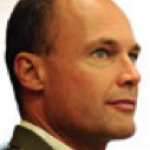
Bertrand Piccard
Chairman, Solar Impulse, Switzerland
The first ever non-stop balloon flight around the world brought Bertrand Piccard fame as the “scientist-adventurer.” Born into a dynasty of explorers and scientists who conquered the heights and the depths of our planet, Bertrand seemed predestined to pursue one of the greatest family adventures of the 20th century. As a doctor specialised in psychiatry and psychotherapy, aeronaut, internationally renowned public speaker, author, President of the “Winds of Hope” humanitarian foundation and Goodwill Ambassador for the United Nations, Bertrand aims to combine his family’s scientific legacy with his commitment to exploring the great adventure of life. As President of Solar Impulse, his latest project which aims to re-enact the history of powered flight using only solar energy in an aircraft capable of remaining airborne without producing any polluting emissions, Bertrand hopes to draw the public’s attention to the inevitable changes needed to ensure our planet’s future energy resources and ecology and to give environmental protection a positive and stimulating image.
R

Gary Ross
CEO, Pira Energy Group, USA
Dr. Gary N. Ross (Chief Executive Officer) has led PIRA Energy Group from its inception in 1976 and is widely known and respected as a leading authority on worldwide energy markets for more than 35 years. He has guided the growth in PIRA’s consulting business and is the Managing Director of the Global Oil Group, where he is responsible for short- and long-term oil market forecasts. He also advises many governments on energy markets and energy policy issues. Dr. Ross is a member of the Council on Foreign Relations. Prior to PIRA, he was Chairman of Primo Systems Inc., an energy risk-management software company acquired by Sungard Data Systems Inc. Dr. Ross has a Ph.D. in economics from the City University of New York.
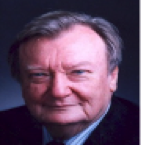
Carlo Rubbia
Nobel laureate, Physics 1984, Italy
Carlo Rubbia was born in Gorizia, Italy, on 31st March 1934. He graduated at Scuola Normale in Pisa, where he completed his University education with a thesis on Cosmic Ray Experiments. He has been working at CERN since 1961. In 1983, heading an international team of more than 100 physicists, Rubbia detected the intermediate vector bosons. In 1984 he was awarded the Nobel Prize for Physics. Carlo Rubbia has served as Director-General of CERN from January 1989 till December 1993. From 1970 to December 1988 Rubbia has spent one semester per year at Harvard University in Cambridge, Massachusetts, where he was Higgins Professor of Physics. From 1986 till 1994 he has been the President of Sincrotrone Trieste (Synchrotron Light Radiation Source) – ELETTRA, one of the first third-generation synchrotron radiation sources in the world, together with Berkeley and Grenoble. More recently he proposed the concept of an Energy Amplifier – a novel and safe way of producing nuclear energy, exploiting present-day accelerator technologies, based on natural thorium. His research activities are presently concentrated on the problem of energy supply for the future, with particular focus on the development of new technologies for renewable energy sources. Prof. Rubbia is currently principal Scientific Adviser of CIEMAT (Spain) and one of the members of the High Level Advisory Group on Climate Change set up by EU’s President Barroso in 2007.

Mohammed Hamed Al Rumhy
Minister of Oil and Gas, Sultanate of Oman
His Excellency Mohammed bin Hamad Al Rumhy became Minister of Oil and Gas of the Sultanate of Oman in December, 1997. Before his current position, Al Rumhy held academic faculty positions in petroleum engineering and served as Assistant Dean of Engineering at Sultan Qaboos University in Oman, and he was awarded the Mitsumae International Foundation Fellowship in Tokyo. From 1980–86, he worked as a petroleum engineer for Petroleum Development Oman. Al Rumhy earned a BS degree and a PhD degree from the Royal School of Mines, Imperial College London, as well as an MS degree from the U. of Tulsa in Oklahoma, all in petroleum engineering. Al Rumhy is married, with two sons, both of whom are currently studying at university.
S

Mohammad Al Sabban
Senior Advisor, Minister of Petroleum, Saudi Arabia
Dr. Mohammad Al Sabban was born in Saudi Arabia. In 1974, he obtained a Bachelor’s Degree in Economics from the King Abdul-Aziz University in Jeddah. He then graduated with a Master’s Degree in Economics from the University of California, Los Angeles. In 1983, he received a PhD in Economics from the University of Colorado, Boulder. He subsequently became Professor of Economics at the King Abdul-Aziz University. Between 1983 and 1987 he was Part time Advisor to the Minister of Industry and Electricity. He became Part time Advisor to the Minister of Petroleum (1987-1997) and has occupied the position of Full time Economic Advisor to the Minister of Petroleum since 1997. Dr. Mohammad Al Sabban has been the Head of the Saudi Delegation and Chief Negotiator to the UNFCCC since 1991. He has participated in many OPEC and OAPEC Ministerial and experts Meetings and Committees. He is a member of several national and international boards and committees and of the Economic Advisory Panel of the Saudi Supreme Economic Council. Dr Al-Sabban is a founding member of the Al Aghar Think-Tank Group. He was the Chairman of the First International Conference of the Clean Development Mechanism in Saudi Arabia (2007) and has participated in many national and international conferences as speaker and/or discussant on issues such as economics, oil, and climate change.
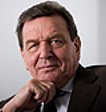
Gerhard Schröder
Chairman, Energy Pact Conference, Former Chancellor of Germany
Gerhard Schröder was born in Germany in 1944. He is the former Chancellor of the Federal Republic of Germany (1998-2005). From 1966 to 1971 he studied law at the University of Göttingen. From 1972 onwards, he served as an assistant at Göttingen University. In 1976, he passed his second law examination and worked as a lawyer until 1990. Schröder joined the Social Democratic Party in 1963. In 1986, he was elected to the parliament of Lower Saxony and became leader of the SPD group. After the SPD won the state elections in June 1990, he became Minister-President of Lower Saxony as head of an SPD-Greens coalition; in this position, he also won the 1994 and 1998 state elections. Following his election as Minister-President in 1990, Schröder became a member of the board of the federal SPD. In 1998 he was elected to Federal Chancellor of the Federal Republic of Germany. He was re-elected in 2002. From 1999 to 2004 he served as Party Chairman for the SPD. In 2005, he became a Councillor for Ringier, a Swiss media company. He is currently Chair of the Shareholder’s Committee of Nord Stream, Independent Director of Anglo-Russian oil company TNK-BP and Member of the Board of Directors, and Member of the European Advisory Council of the Rothschild Group.
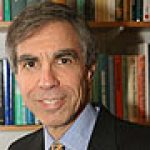
Robert Stavins
Director, Environmental Economics Program, Harvard, USA
Robert N. Stavins is the Albert Pratt Professor of Business and Government, Director of the Harvard Environmental Economics Program, Chairman of the Environment and Natural Resources Faculty Group at the John F. Kennedy School of Government, Director of Graduate Studies for the Doctoral Program in Public Policy and the Doctoral Program in Political Economy and Government, Co Chair of the Harvard Business School Kennedy School Joint Degree Programs, and Co Director of the Harvard Project on International Climate Agreements. He holds a B.A. in philosophy from Northwestern University, an M.S. in agricultural economics from Cornell, and a Ph.D. in economics from Harvard. Professor Stavins directed Project 88, a bi partisan effort co chaired by former Senator Timothy Wirth and the late Senator John Heinz, to develop innovative approaches to environmental and resource problems. He continues to work closely with public officials on matters of national and international environmental policy. He has been a consultant to the National Academy of Sciences, several Administrations, Members of Congress, environmental advocacy groups, the World Bank, the United Nations, the U.S. Agency for International Development, state and national governments, and private foundations and firms. Prior to coming to Harvard, Stavins was a staff economist at the Environmental Defense Fund; and before that, he managed irrigation development in the middle east, and spent four years working in agricultural extension in West Africa as a Peace Corps volunteer.
T
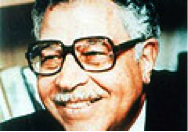
Mostafa Tolba
former Executive Director of the United Nations Environment Program, Egypt
Since the late sixties the world, especially in the industrialized western countries, has become aware of the threat to life on earth if we continue to destroy our environment. The United Nations responded in 1972 by establishing the United Nations Environment Programme (UNEP), based in Nairobi, Kenya. For 17 years of its life (1976-1992) the man who has headed the world programme to protect the environment is Egyptian scientist Dr. Mostafa Tolba. And it is to his leadership that much of the credit for directing the environment to the forefront of global thinking and action is due. UNEP has applied a scientific method to the problem of gathering the facts of our endangered earth, atmosphere and water. The result is Earthwatch, an information network to monitor changing conditions worldwide, to analyse and disseminate data for effective planning. In 1972, when Dr. Tolba led his country’s delegation to the Stockholm Conference on the Human Environment, which gave rise to the United Nations Environment Programme, he said there was no irreconcilable conflict between concern for the environment and development. At that time most developing countries, and many others, did not agree. They saw environmental problems as the problems of pollution and costly, elaborate pollution controls as impediments to development. But now, more than 35 years on, Third World leaders are often more vociferous about the need for environmentally sound or sustainable development than their industrialized counterparts. Global warming and sea level rise, a thinning ozone layer, the dumping of hazardous wastes, sewage polluted beaches, the loss of tropical forests and species… these and other environmental issues now regularly make headlines in First and Third World media. And such widespread news coverage is the surest sign of the new awareness among readers, listeners and viewers, consumers and voters all over the world of the fragility of an environment that development has so largely ignored.
V
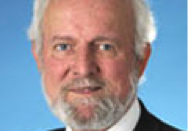
Ernst Ulrich von Weizsäcker
Co-Chair, International Panel for Sustainable Resource Management, Germany
Lifting a ten kilograms weight from the sea level to the top of Mont Blanc requires roughly one seventh of a kilowatthour. This simple calculation indicates that we are wasting energy no end. Technically, there is scope for increasing energy productivity tenfold, or more. Why is it not done? Because it’s not profitable under the conditions of today’s low energy prices. It’s like with human labour. Under the conditions of slavery or indecently low wages, investors would have shun robotics. Second in priority is renewable energy. The German feed-in tariffs have shown the way.
U

Pierre-François Unger
Counsellor of State, Department of Health and Economy
Pierre-François Unger was born on August 21, 1951 in Geneva, Switzerland, He is married and has two children. Following a serious illness from 4 to 6 years of age, he decided to devote his life to medicine, and at the age of 24, he finished his medial studies and became Dr. Pierre-François Unger. After spending several years abroad, with a significant amount of that time in Paris, he returned to Geneva and in 1986 was named head of the Emergency Ward at Geneva’s Teaching Hospitals. Under his stewardship, the necessary measures were taken to upgrade and modernise the services provided. In 1999, he became Professor of Medicine. At the same time that Pierre-François Unger was pursuing a brilliant medical career, he was also becoming increasingly involved in the political arena with the Christian-Democratic Party in Geneva. He was a member of the Grand Conseil from 1993 to 1999, and in 2001 was elected to the State Department and became, at 50 years old, head of social and health services. He ran again for a second term 4 years later and came in first of all the elected members of government. Since December 2005, he has taken over the department of economy and health. Pierre-François Unger’s all consuming interest in mankind – diversity, as well as the various stages man goes through during his life – is evidenced by his warm, outgoing manner and his drive for action. He is held in high esteem by his friends as well as in his political activities.
W
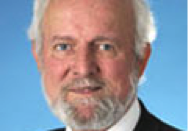
Ernst Ulrich von Weizsäcker
Co-Chair, International Panel for Sustainable Resource Management, Germany
Ernst Ulrich von Weizsäcker was born 25th June, 1939 in Zürich, Switzerland. He graduated with a Master’s Degree in Physics from Hamburg University in 1965 and obtained a Ph.D. in Biology from the University of Freiburg four years later. In 1972 he became Professor of Biology at Essen University. He served as Founding President of the University of Kassel between 1975 and 1980. He later occupied the positions of Director at the UN Centre for Science and Technology for Development, New York (1981) and of Director of the Institute for European Environmental Policy, Bonn, London, Paris (1984). Between 1991 and 2000 he served as Founding President of the Wuppertal Institute for Climate Environment and Energy. In 1998 he became a Member of Parliament (SPD), and was Chair of the Bundestag Study Commission on Economic Globalisation and consecutively of the Environment Committee. From 2006 to his retirement in 2009, he was Dean at the Bren School for Environmental Science and Management, UC Santa Barbara. He is currently a Co-Chair on the International Panel on Sustainable Resource Use.
Y

Javad Yarjani
Head of Department for OPEC, Ministry for Petroleum, Iran
Javad Yarjani has been Head of the Petroleum Market Analysis Department at the Organization of the Petroleum Exporting Countries (OPEC) Secretariat in Vienna, Austria, since August 1998. Since joining OPEC, he has taken part in many inter-national forums as a member of OPEC delegations to various high-level meetings such as 2nd OPEC Summit of Heads of State in Caracas, Venezuela, in September 2000, and the International Energy Forum in Riyadh, Saudi Arabia, in November 2000. Mr Yarjani was appointed Managing Director of the International Bureau for Energy Studies in London in 1996. From 1994 to 1996, he was Head of the OPEC Department at the Ministry of Petroleum, while also serving as Advisor to the Minister and National Representative to OPEC. In 1993, he was appointed Deputy Director for International Affairs at the National Iranian Oil Company (NIOC), in charge of crude oil marketing and exports. Mr Yarjani has represented both the NIOC and the Ministry of Petroleum at numerous conferences and seminars and was in charge of the NIOC’s offices in Singapore and Tokyo. He was Director for Economic Relations with Europe and America at the Ministry of Foreign Affairs in Tehran until 1986. He has also worked in his country’s Foreign Ministry as of 1980, where he has held several positions, including Head of Mission at the Iranian Embassy in Australia from 1980 to 1982. Mr Yarjani obtained his Bachelor’s degree in Economics at the National University of Iran and his MA, also in Economics, at the University of Houston, Texas.


